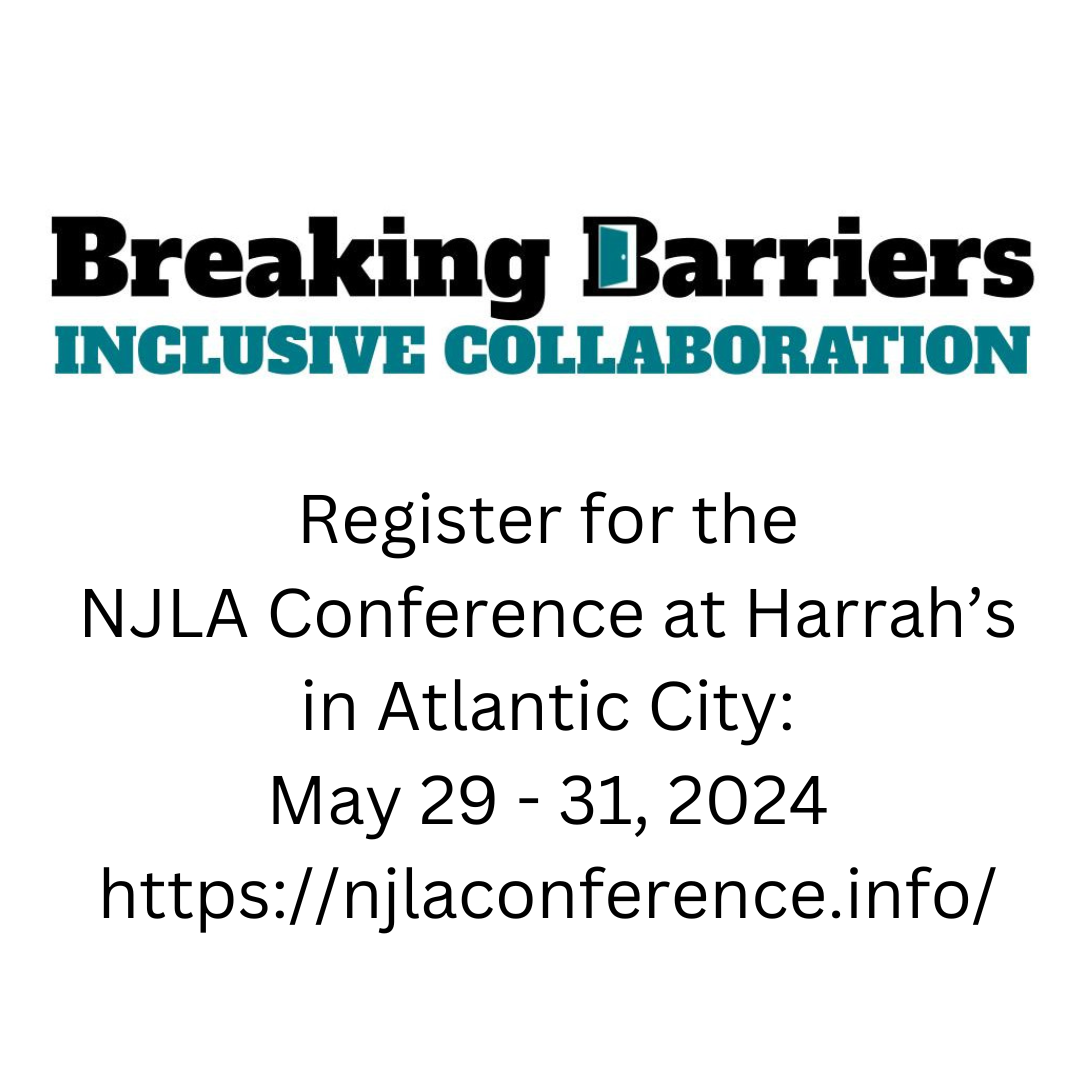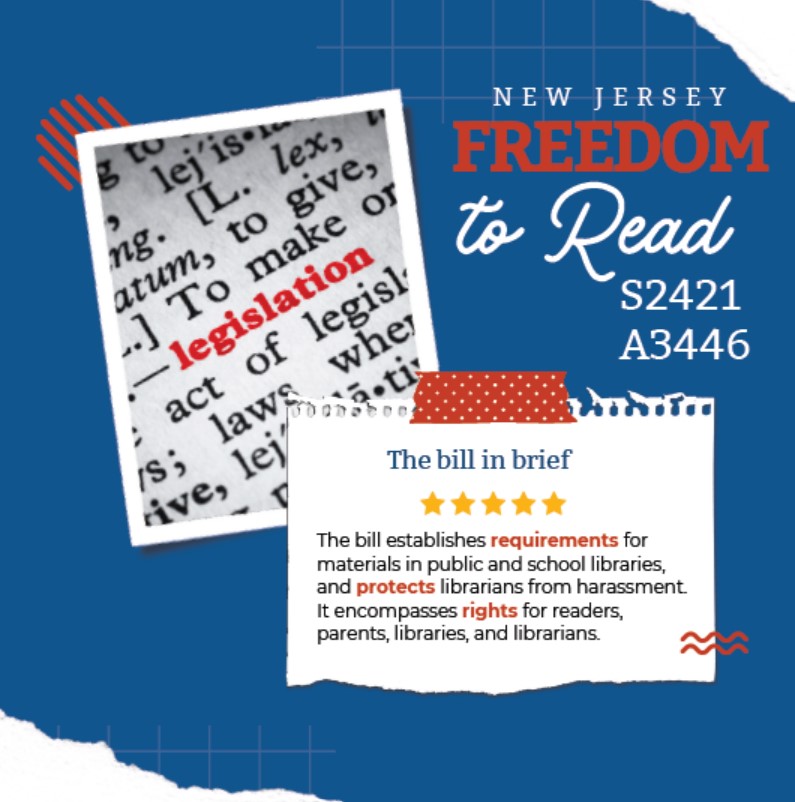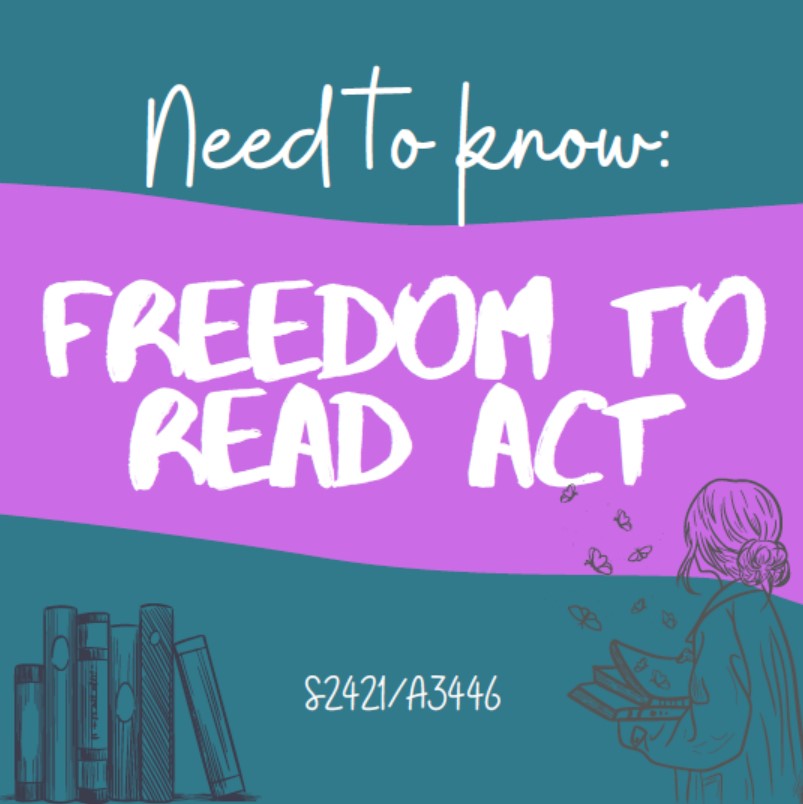Spring 2024 CUS/ACRL-NJ Newsletter

From the President
By Gary Marks, Jr.
 Spring is here and as our organization closes in on the culmination of another successful academic year we reflect on our achievements and look forward to the many exciting ventures ahead.
Spring is here and as our organization closes in on the culmination of another successful academic year we reflect on our achievements and look forward to the many exciting ventures ahead.
The highlight of the year was the NJ Academic Libraries Conference in January at Middlesex College. It was an honor to co-chair this year’s conference and bring the NJ academic librarian community back together after a multi-year hiatus from the in-person conference experience. I invite everyone to read more about the conference and the full conference report in the VALE Program Manager's article in this issue.
Another exciting venture this year was the launch of “Teaching Thursdays," a collaborative program between NJLA-CUS/ACRL-NJ and NJASL where academic and school librarians meet to discuss information literacy, instructional tools, techniques, and resources, and our shared experiences and challenges as librarians. Thanks to the help of our NJASL Liaison, Ewa Dziedzic-Elliot, the first three Teaching Thursdays programs have been a great success with topics on career-readiness instruction and resources, teaching the teachers to incorporate information literacy into their instruction, and demystifying academic libraries for K-12 school librarians and students. We are currently preparing to have the Teaching Thursdays program recordings and resources added to the OpenNJ repository making them freely accessible to librarians throughout the state and beyond. Please visit the Teaching Thursdays website to learn more and to register for the next program on May 18th. You can learn more about our ongoing collaborations with NJASL in the NJASL-NJLA-CUS/ACRL-NJ Partnership article in this issue.
Quickly approaching is the NJLA Conference in Atlantic City, NJ on May 29th -31st! The academic librarian community continues to increase our presence and role at the NJLA annual conference. There are several conference sessions and poster presentations relevant to the academic community throughout the conference with many academic programs on Friday, May 31st! Among these you’ll find updates from our Membership Assessment Taskforce and the NJ Learning Standards Taskforce. The highlight of the conference for our members will be on Friday, May 31st during the Research Forum, and the College & University Section Luncheon. The CUS Luncheon will serve as a venue for recognizing our Section Honors & Awards Recipients and our annual business meeting. This year the Executive Board will be proposing new Bylaw Amendments for the membership to vote upon, including adopting a new name for the organization. More information will be provided to our membership as details are finalized.
Register for the NJLA Conference today. https://njlaconference.info/content/attendee-registration
This year our organization has also demonstrated its commitment to supporting school librarians, libraries, and the freedom to read by becoming more involved in advocacy and raising awareness of book challenges and related issues in NJ. Our Rapid Response Team Liaison, Lisa Bogart, has been integral in attending and speaking at meetings and events surrounding book challenges in NJ and by sharing vital information about these issues with our membership. We invite everyone to be involved and do what you can to support libraries and librarians in NJ as our calls to action continue to mobilize our academic community.
It’s an exciting time to be a librarian, and with a bright future ahead, now is the perfect time to step in and get involved with NJLA-CUS/ACRL-NJ. We have several committees and other positions available for you to get involved! Visit our website to learn more, or find us at the NJLA conference!
I look forward to seeing many of you at the NJLA Conference on May 29th - 31st!
Gary Marks, Jr. is the Reference and Outreach Librarian at William Paterson University. He can be reached at marksg@wpunj.edu.
In This Issue...
- From the President
- Announcements
- VALE Updates
- Updates from LibraryLinkNJ
- NJLA CUS / ACRL-NJ Distinguished Service Award Winner
- Challenging and Banning Books in NJ’s Public and Public School Libraries? Unfortunately, Yes. It is Happening.
- Major Information Literacy Improvements With Zero Dollars. It Can Be Done!
- Contextualizing Your LIS Research Through Reflection and Dialogue
- Taking Stock of the Academic Librarian Community in New Jersey
- NJASL Partners With NJLA CUS / ACRL-NJ
- Building a Library Culture of Belonging for the Future
- Centenary University's Taylor Memorial Library Partners with the Black Authors Hall of Fame
- SCARLA Offers Curated Professional Development for All
- News From Jennings Library at Caldwell University
VALE Updates
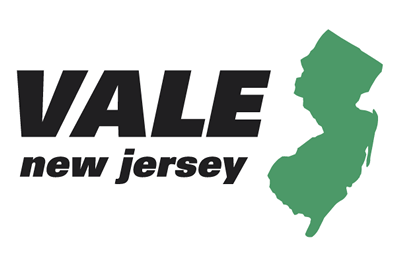
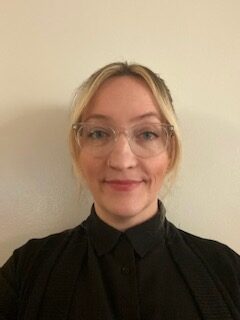
Thank you to all who contributed to the planning, participation, and presentations for the 2024 New Jersey Academic Libraries Conference! This year’s conference returned to in-person at Middlesex College in Edison, NJ on Friday, January 5, 2024, and was very well attended. Photos from the conference can be viewed on VALE’s Flickr page. Breakout slides, presentations, and posters are linked on the VALE Conference website, along with the full final report summary.
The success of the conference was due to various reasons, including 18 librarians across the NJ academic libraries helping to plan the in-person conference, using a double-blind peer review process to vet all proposals, aligning the conference theme with all breakout and poster sessions, and commemorating VALE’s 25th anniversary. The top three reasons for attending the conference were professional development, location, and networking opportunities. The keynote speaker, current ALA President Emily Drabinski, was very well-received and the NJLA Store had a presence at the conference for the first time.
The exhibitor/sponsor feedback was also very positive. Eight of ten exhibitor sponsors responded to the survey, and seven of the eight were first-time exhibitors at NJALC (formerly known as VALE/NJ ACRL/NJLA CUS Users' Conference). Their top reasons for exhibiting included the quality of attendees and the opportunity to network with the attendees. Five of the eight indicated that they plan to exhibit again next year.
Edge’s current issue of View from the Edge magazine (Winter/Spring 2024) features our very own Executive Committee Chair Ann Hoang along with photos from our 2024 NJAL Conference in the article “The Vital Role of Academic Libraries in the 21st Century.”
The VALE Executive Committee held a special FY25 Budget Meeting in January to approve the proposed FY2025 budget, which was approved at the March 28, 2024, Members’ Council meeting. All meeting minutes, as well as our new Organizational Chart (see below), are available to view on our website.
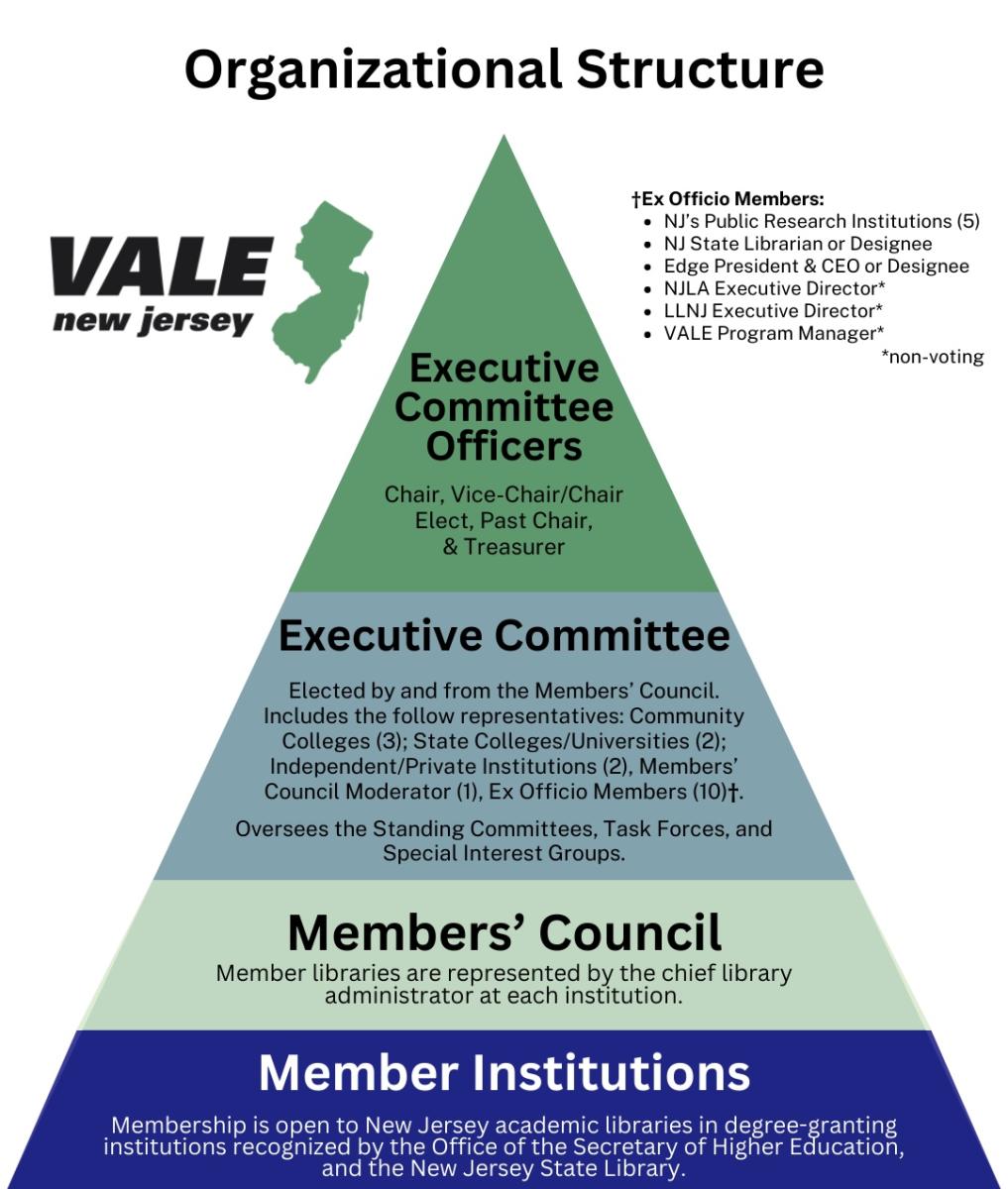
The Executive Committee is preparing for upcoming elections in June, when we will be electing representatives from the following sectors for July 2024 through June 2026: Community College Sector (2 seats), Independent Sector (1 seat), State College/University (1 seat) and the role of Members’ Council Moderator. The call for nominations is forthcoming - you can find detailed information on the open seats here. Our upcoming June 13th Members’ Council and Executive Committee meetings will be held in person at Mercer County Community College in West Windsor Township.
The Strategic Planning Task Force is in the process of onboarding a Strategic Planning Consultant and planning a retreat for Summer 2024. Our new Special Interest Group (SIG) for Small Liberal Arts Colleges has grown to 14 members. You can find more information about our Standing Committees, Task Forces, and Special Interest groups on our website.
Since the last newsletter, we have onboarded Mango Languages (Mango Languages & ASL Inside), Reprints Desk (Article Galaxy Scholar), and the Center for Research Libraries (NYT News & NYT All Access) as partner vendors. You can view an up-to-date listing of VALE vendors and products here. Renewal pricing for FY2025 has started to come in and will be available to view in Consortia Manager on a rolling basis. Thank you to those who filled out the FY2025 eResources Survey - keep an eye on the VALE listserv for upcoming product demos and trials!
VALE will continue to partner with vendors to offer product demonstrations and information sessions. Contact me with any questions or requests! Do not hesitate to schedule a site visit to your library so that I may gain a better understanding of the VALE community and your needs.
Ali Cole, MSLIS (she/her/hers) | VALE Program Manager | VALE Social Media Links
alison.cole@valenj.org | C: 201-268-1513 (call or text) | W: 855-832-EDGE (3343)
NJLA-CUS ACRL-NJ Distinguished Service Award
We are pleased to announce that Marilyn Ochoa is the 2024 recipient of the NJLA-CUS ACRL-NJ Distinguished Service Award. This annual award honors a person who, by his or her outstanding contributions, has directly enriched librarianship in higher education in New Jersey.
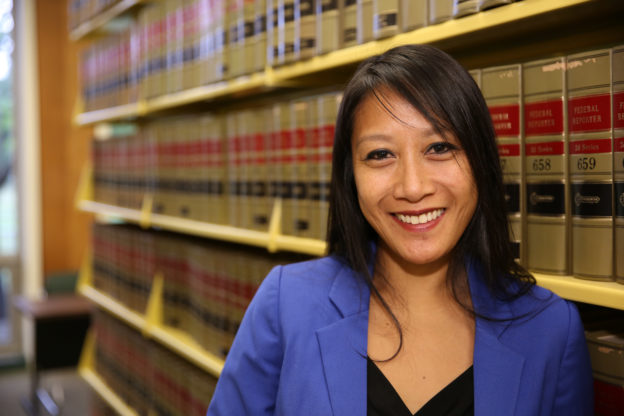 Marilyn Ochoa has been the Library Services Director at Middlesex College since 2016. Marilyn is the Vice Chair/Chair Elect and Moderator of the Virtual Academic Library Environment (VALE) consortia, where she plays a crucial leadership role in implementing open educational resources initiatives. In 2019, Marilyn co-developed OpenNJ - shared Open Educational Resources (OER) repository. Since 2021, Marilyn has also been Principal Investigator for the Open Textbook Collaborative Grant.
Marilyn Ochoa has been the Library Services Director at Middlesex College since 2016. Marilyn is the Vice Chair/Chair Elect and Moderator of the Virtual Academic Library Environment (VALE) consortia, where she plays a crucial leadership role in implementing open educational resources initiatives. In 2019, Marilyn co-developed OpenNJ - shared Open Educational Resources (OER) repository. Since 2021, Marilyn has also been Principal Investigator for the Open Textbook Collaborative Grant.
Her nominator said: “As Principal Investigator for this Grant, Marilyn has focused OER development on serving students in the career and technical STEM fields working with academic and industry partners from across the state including county colleges, Rowan University, NJIT, Rutgers University, Edge, and NJTransfer.”
On a personal note, when last year we learned that our annual 2024 Academic Libraries Conference would not be able to take place as usual at the Rutgers Busch Campus, Marilyn recommended to move the conference to Middlesex College and she provided superb assistance for that great event.
Marilyn will be presented with the commemorative plaque at the 2024 NJLA Annual Conference. Please join me in congratulating Marilyn for being honored with the Distinguished Service Award.
Maria Deptula is the Collection Librarian at George F. Smith Library of the Health Sciences at Rutgers University. She can be reached at mdeptula@libraries.rutgers.edu.
Announcements
Caldwell University
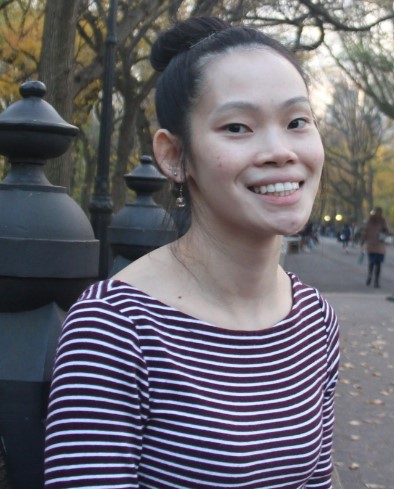 Phoebe Duke-Mosier has joined the Jennings Library at Caldwell University as the new Instruction & Assessment Librarian. She is the librarian liaison for English, Sociology & Criminal Justice, and ABA. Phoebe graduated from the University of Alabama last spring with an MLIS and an MA in religious studies. Before going to graduate school, she worked as a legal support professional, and she also has experience as a copyeditor. In her free time, she enjoys baking, crossword puzzles, and intermittently trying to take up knitting. She is passionate about the liberal arts and excited to work with Caldwell’s community.
Phoebe Duke-Mosier has joined the Jennings Library at Caldwell University as the new Instruction & Assessment Librarian. She is the librarian liaison for English, Sociology & Criminal Justice, and ABA. Phoebe graduated from the University of Alabama last spring with an MLIS and an MA in religious studies. Before going to graduate school, she worked as a legal support professional, and she also has experience as a copyeditor. In her free time, she enjoys baking, crossword puzzles, and intermittently trying to take up knitting. She is passionate about the liberal arts and excited to work with Caldwell’s community.
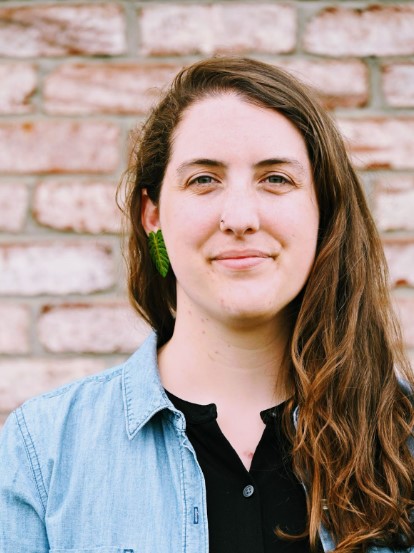 Christina Getaz was promoted to Electronic Resources Librarian at Jennings Library at Caldwell University. She previously worked as Instruction and Assessment Librarian.
Christina Getaz was promoted to Electronic Resources Librarian at Jennings Library at Caldwell University. She previously worked as Instruction and Assessment Librarian.
Montclair University
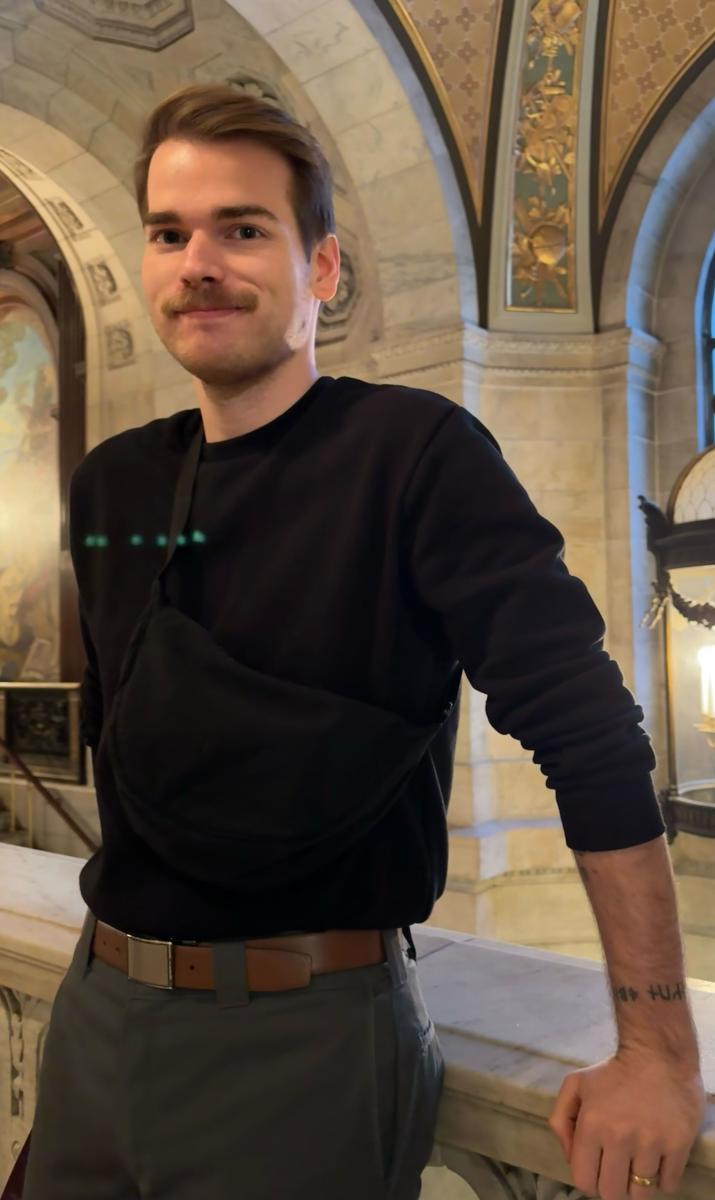 Jacob Bilek joined the Harry A. Sprague Library as a Reference & Instruction Librarian for STEM in the Research and Reference Services Department in February 2024. Jacob earned his MSIS in 2020 from the University of Tennessee - Knoxville and has worked as a faculty librarian since 2022. He brings with him experience as a Social Sciences Librarian and Medical Library Specialist from East Tennessee State University. Jacob's research interests include health information literacy, research data management, and archives.
Jacob Bilek joined the Harry A. Sprague Library as a Reference & Instruction Librarian for STEM in the Research and Reference Services Department in February 2024. Jacob earned his MSIS in 2020 from the University of Tennessee - Knoxville and has worked as a faculty librarian since 2022. He brings with him experience as a Social Sciences Librarian and Medical Library Specialist from East Tennessee State University. Jacob's research interests include health information literacy, research data management, and archives.
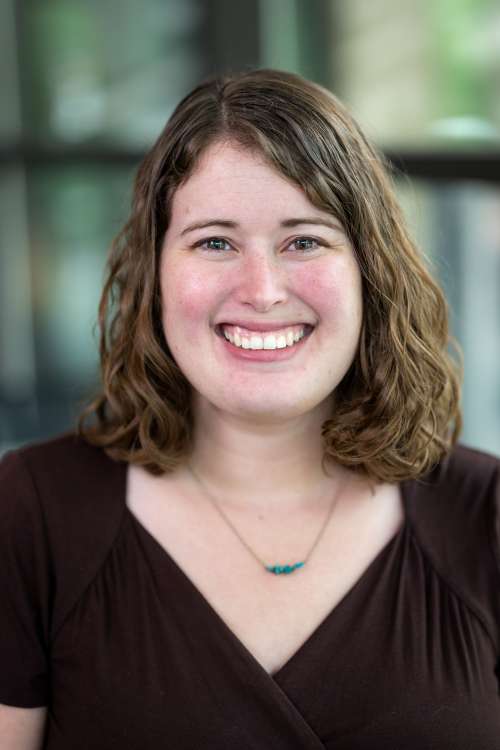 Perri Moreno received her Masters of Library and Information Science from the Morgridge College of Education at the University of Denver in 2018. She joined the Harry A. Sprague Library in the Fall of 2023 as the inaugural Student Success Librarian. Previously Perri worked at the University of Idaho, where she was a Reference/Instruction Librarian. There she worked closely with current and incoming first year students as a member of the University of Idaho Library’s First Year Experience Team.
Perri Moreno received her Masters of Library and Information Science from the Morgridge College of Education at the University of Denver in 2018. She joined the Harry A. Sprague Library in the Fall of 2023 as the inaugural Student Success Librarian. Previously Perri worked at the University of Idaho, where she was a Reference/Instruction Librarian. There she worked closely with current and incoming first year students as a member of the University of Idaho Library’s First Year Experience Team.
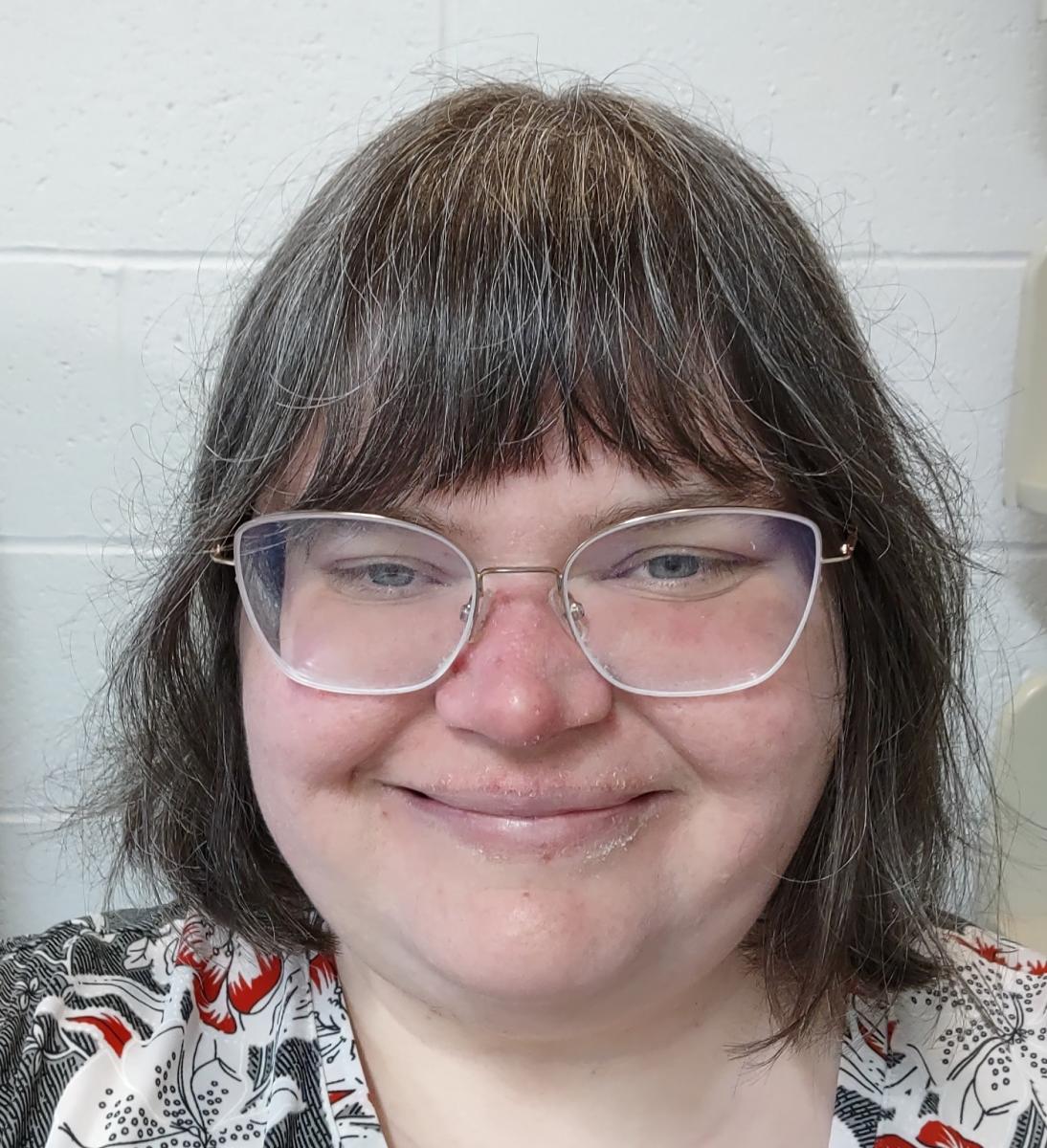 Catherine Oliver joined Montclair State University Libraries as the Head for Cataloging, Metadata and Archive Services in November 2023. Before she decided to join Montclair and relocate back to New Jersey, Catherine was a Metadata and Cataloging Services Librarian at Northern Michigan University where, among other things, she served as a metadata consultant for the UPLINK digitization project, which has created a digital library of primary sources held by cultural heritage organizations across the Upper Peninsula of Michigan. Catherine began her library career as a Special Collections Assistant at Princeton University Libraries.
Catherine Oliver joined Montclair State University Libraries as the Head for Cataloging, Metadata and Archive Services in November 2023. Before she decided to join Montclair and relocate back to New Jersey, Catherine was a Metadata and Cataloging Services Librarian at Northern Michigan University where, among other things, she served as a metadata consultant for the UPLINK digitization project, which has created a digital library of primary sources held by cultural heritage organizations across the Upper Peninsula of Michigan. Catherine began her library career as a Special Collections Assistant at Princeton University Libraries.
 Drew Wallace joined the Harry A. Sprague Library as a Reference and Instruction Librarian in the Research and Reference Services Department in August 2022. Drew earned his MSI degree and graduate certificates in Information Leadership and User Services at Florida State University in 2022 and holds a MA in Political Science from Marshall University and a BA in History from West Virginia Wesleyan College. He previously worked as a Reference Librarian at Eckerd College, Instructional Support Specialist at St. Petersburg College, and Instructor at Virginia Tech. His primary research interests are neurodiversity in academic libraries and critical information literacy.
Drew Wallace joined the Harry A. Sprague Library as a Reference and Instruction Librarian in the Research and Reference Services Department in August 2022. Drew earned his MSI degree and graduate certificates in Information Leadership and User Services at Florida State University in 2022 and holds a MA in Political Science from Marshall University and a BA in History from West Virginia Wesleyan College. He previously worked as a Reference Librarian at Eckerd College, Instructional Support Specialist at St. Petersburg College, and Instructor at Virginia Tech. His primary research interests are neurodiversity in academic libraries and critical information literacy.
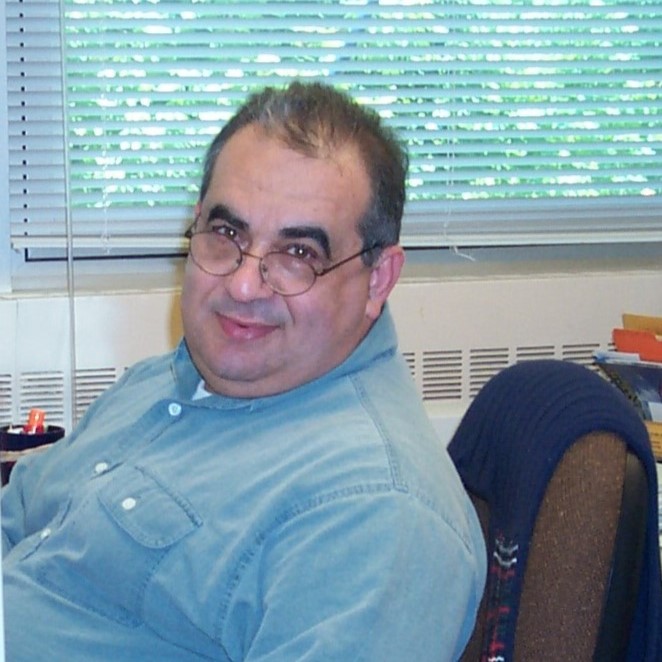 Ramapo College of New Jersey
Ramapo College of New Jersey
Vito Savino celebrated over 50 years of serving as the Budget Supervisor and handling Serials & Series Purchasing at George T. Potter Library. Congratulations, Vito, and thank you for all of your hard work!
Stockton University
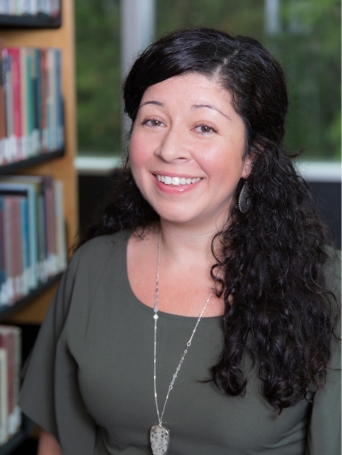 Jaimelyn Lombardo has been promoted to Electronic Resources Coordinator. Starting in 2006 in the Circulation Department, she later transitioned to Technical Services and was most recently our Electronic Resources & Periodicals Specialist.
Jaimelyn Lombardo has been promoted to Electronic Resources Coordinator. Starting in 2006 in the Circulation Department, she later transitioned to Technical Services and was most recently our Electronic Resources & Periodicals Specialist.
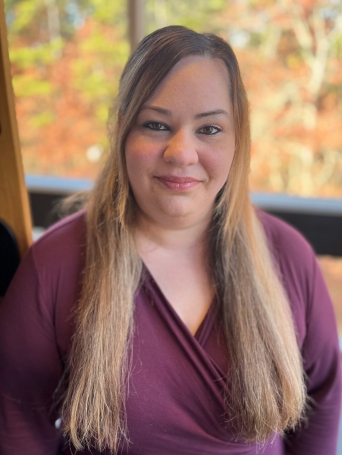 Stephanie Sussmeier joined the Bjork Library as Metadata & Cataloging Librarian in November 2023. She previously worked as Discovery Archivist at Avalon History Center/Avalon Free Public Library and Special Collections and Archives Librarian at Westminster Choir College of Rider University.
Stephanie Sussmeier joined the Bjork Library as Metadata & Cataloging Librarian in November 2023. She previously worked as Discovery Archivist at Avalon History Center/Avalon Free Public Library and Special Collections and Archives Librarian at Westminster Choir College of Rider University.
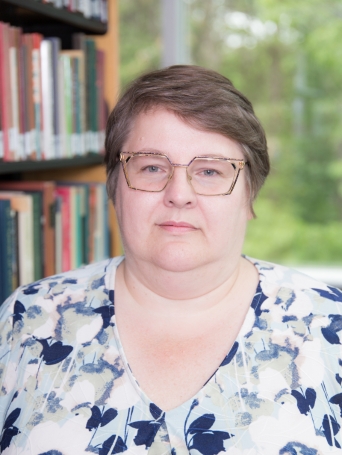 Natalie Wadley has been promoted to Assistant Director of Systems and Technical Services. Natalie joined Bjork Library in 2014 as Library Systems Coordinator.
Natalie Wadley has been promoted to Assistant Director of Systems and Technical Services. Natalie joined Bjork Library in 2014 as Library Systems Coordinator.
Updates from LibraryLinkNJ
All NJ library staff in all library types are invited and encouraged to take advantage of LibraryLinkNJ’s services and programming opportunities. There are no dues, membership fees, or member enrollment required. Simply join us!
Register for your free online account to make sure you’re receiving our emails and updates, or simply take a look below at some of what’s available for academic library staff!
Questions about LibraryLinkNJ or how to participate? Contact our Academic Library Liaison, Ralph Bingham: ralph@librarylinknj.org
___________________________________
LibraryLinkNJ LearningSpace On-Demand Training Portal - Visit the On-Demand training portal to access asynchronous learning modules designed specifically for library staff!
This winter, LibraryLinkNJ took a significant step forward by expanding our on-demand learning platform's course catalog to include specialized Learning Pathways for distinct audiences. With close to 200 courses now available on the LearningSpace, these pathways simplify the process for users to locate the content that's most pertinent to their specific library setting.
For those involved in academic and school libraries, our Academic Library Learning Pathway is a treasure trove of expertise, offering courses that delve into essential topics such as EDI (Equity, Diversity, Inclusion) practices, crisis management, user engagement, intellectual rights, and more.
Our latest enhancement includes 18 tutorials focused on electronic resources provided through the JerseyClicks program, a statewide initiative backed by the New Jersey State Library. This pathway offers guidance on harnessing the power of these remarkable reference resources effectively.
____________________________________
Upcoming Events - Join us for any or all of these upcoming Continuing Education opportunities, free of charge!
- The Importance of Self-Awareness; Virtual; Thursday, April 25th @ 10am. *Registration for this event is limited to 60 attendees.*
- Crafting Policies *With* AI; Virtual; Tuesday, April 30th @ 2:30pm. *Registration is limited to 20 attendees.*
- AI Ethics: A Library Perspective; Virtual; Thursday, May 2nd @ 2:30pm.
- Skill-Sharing Conversation: Running a Writer’s Roundtable; Virtual; Tuesday, May 7th @ 11am.
- Tech Summit for NJ Libraries; In Person; Thursday, May 9th @ 10am. *Registration for this event is full, but space on the waitlist is available.*
- Planning for AI in a Time of Uncertainty; Virtual; Monday, May 20th @ 2:30pm.
- Strategies for Effective Bystander Intervention; Virtual; Wednesday, June 12th @ 10am. Brought to you by the NJ Division on Civil Rights.
_________________________________________
In Case You Missed It
- Getting Started with Gender-Inclusive Cataloging: View the full recording of our recent webinar on Gender-Inclusive Cataloging, which offers suggestions for workers in libraries and cultural heritage institutions who create metadata about trans and gender-diverse people, communities, resources and/or topics, especially as this language is ever-evolving.
- Skill-Sharing Conversation: Library Reclassification Projects: View the full recording of our recent Skill-Sharing Conversation on tackling reclassification projects in your library, led by Lisa Thornton of Seton Hall University and Catherine Oliver of Montclair State University.
____________________________________
MentorNJ Online Meetups - MentorNJ’s Online Meetups provide informal opportunities to ask questions, share successes, gain support, or simply catch up with colleagues from around the state!
All are welcome at all Meetups and no registration is required - simply be sure your LLNJ user account is active to receive the Zoom links for that week’s Meetups each Monday!
You can find more details and a full listing of Meetups on our events calendar, or save these select April and May Meetup dates:
- African American Library Staff: Wednesday, 4/24 @ 2pm
- Adventures in Administration: Thursday, 4/25 @ 10:30am
- Maker Meetup: Thursday, 5/2 @ 2pm
- Disabled & Neurodivergent Library Staff Meetup: Tuesday, 5/7 @ 2pm
- Latino Library Staff: Tuesday, 5/14 @ 10am
- Juggling Parenting & Library Work: Wednesday, 5/15 @ 2pm
- Tech: Thursday, 5/16 @ 3pm
- API: Friday, 5/17 @ 10am
___________________________________
New - LibraryLinkNJ Virtual Office Hours!
A new way to reach our team! Drop by any of our scheduled office hours to talk face-to-face via Zoom with an LLNJ team member. Whether you have questions, suggestions, need assistance, or just want to catch up on what's happening at the Cooperative, no appointment or registration is required.
Our monthly Office Hours schedule is listed below:
- 1st Monday, 11am-12pm, Virtual Office Hours via Zoom
- Ralph Bingham, Executive Director - 1st Tuesday, 9:30am-10:30am, Virtual Office Hours via Zoom
- Stephanie Sendaula, Programming & Outreach Specialist - 2nd Wednesday, 4:30-5:30pm, Virtual Office Hours via Zoom
- Darby Malvey, Programming and Outreach Manager - 3rd Monday, 10am-11am, Virtual Office Hours via Zoom
- Jon Braun, Online Learning & Digital Content Specialist - 3rd Friday, 10am-11am, Virtual Office Hours via Zoom
- Jon Braun, Online Learning & Digital Content Specialist - 4th Tuesday, 3:00-4:00pm, Virtual Office Hours via Zoom
- Mi-Sun Lyu, Project Manager
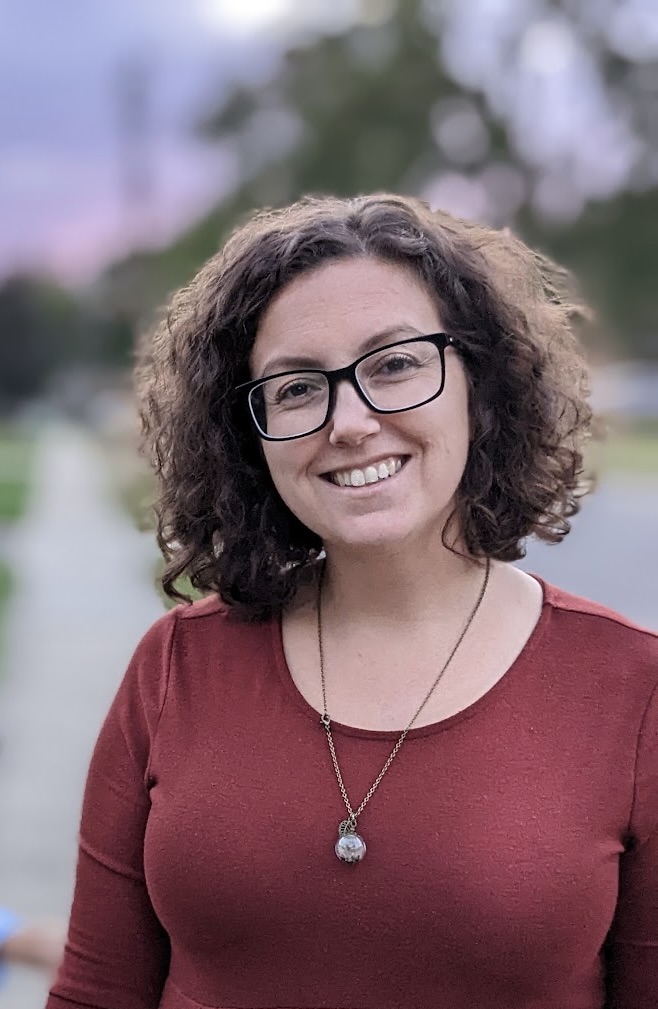
We hope to see you there!
Darby Malvey (she/her) is the Programming & Outreach Manager at LibraryLinkNJ. She can be reached at darby@librarylinknj.org.
Challenging and Banning Books in NJ’s Public and Public School Libraries?
Unfortunately, Yes. It is Happening.
By Lisa Bogart
Last December, at the end of a New Jersey Library Association College and University Section (NJLA-CUS) meeting, Gary Marks, who is the president of the association and a librarian at William Paterson University, asked the small group if we knew of anyone interested in serving on a new task force. Called the Rapid Response Team, it is a joint effort between primarily k-12 librarians who belong to the New Jersey Association of School Librarians (NJASL) and NJLA-CUS. The purpose is to provide a support team around libraries and librarians who are going through book challenges and bans.
I immediately volunteered. Why? Having already witnessed a highly publicized book challenge at the public library in my hometown, I saw the damage, expense, and stress these situations caused. I had already learned of a life-long friendship lost due to an attempt at challenging a book, along with reading about a local school librarian who lost her job. And, there has been a great deal of attention paid to nationally recognized librarian Martha Hickson and the North Hunterdon-Voorhees (NHV) High School district.
The book challengers in my hometown started as a group of four people, with only one resident carrying through the book challenge to its conclusion. This person’s children are all adults and don’t live in town. The library and its board had to incur lawyer’s fees, reschedule and change meeting sites, developed an entire public relations campaign including printed lawn and hand signs. A very time consuming and costly effort with only one person ultimately behind the challenge. The challenged titles remained on the shelves!!
I was immediately in the deep end of the pool as soon as I volunteered and was accepted as a Rapid Response Team member. While a formal complaint had yet to be made, a rather vicious effort had already begun to remove Erika Moen and Matthew Nolan’s Let’s Talk About It from the NHV library’s shelves. The book is a highly recommended title aimed at teens, with very frank discussions about sexuality, an adolescence’s rapidly changing body, and the different types of sex people have.
And, for the third time in as many years, the winner of the 2022 American Library Association’s Lemony Snicket Prize for Noble Librarians Faced with Adversity, Martha Hickson, was in the middle of this divisive challenge.
After sending out information about the challenge and the date of the next NHV Board of education meeting, I was introduced to some of the other librarians involved in supporting the right to read, and more importantly, protecting students’ first amendment rights. And then I went to the NHV Board of Education meeting in January.
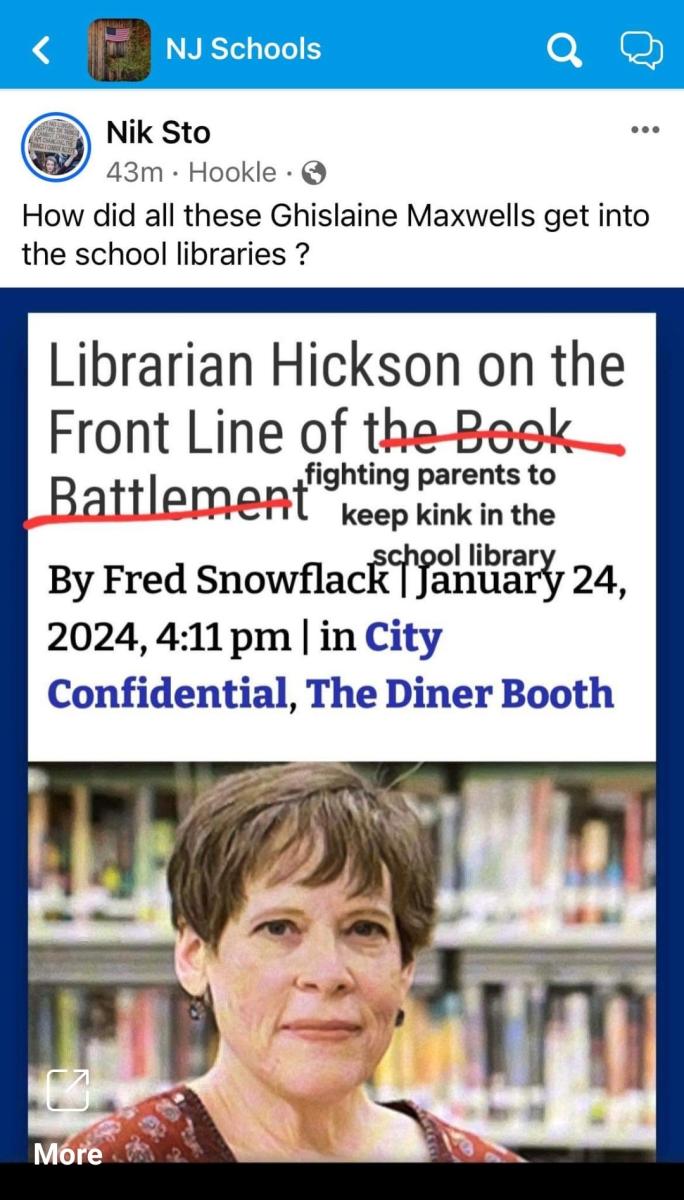
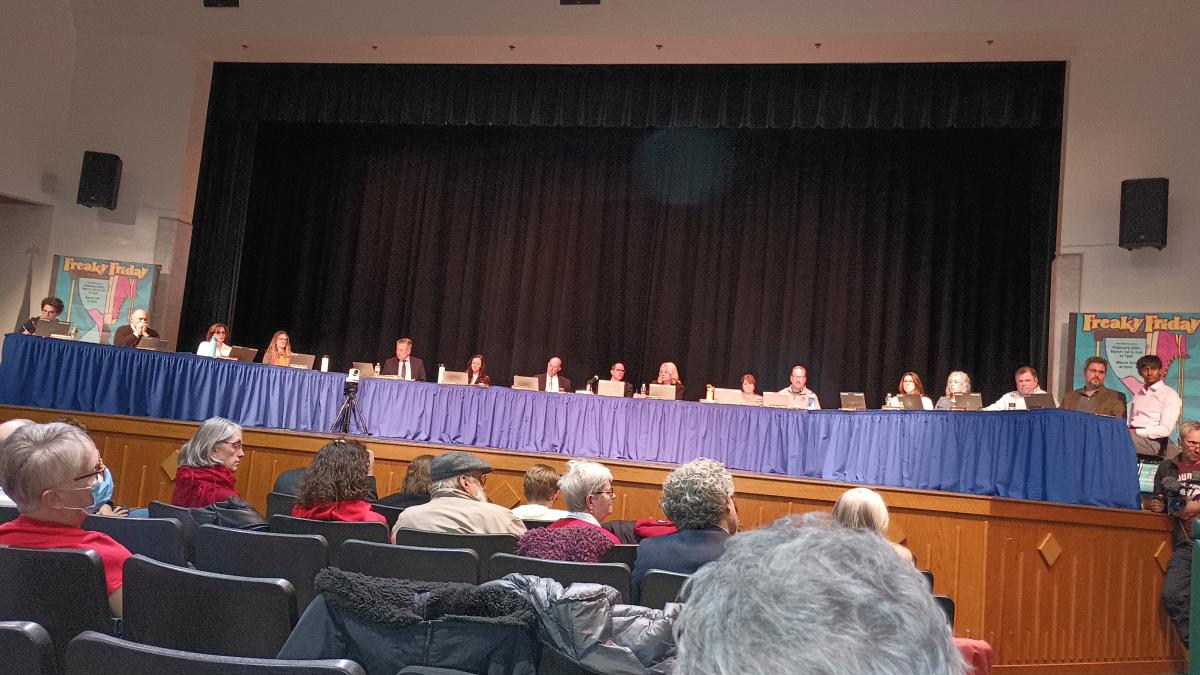
Wow! The support for the book and for librarian Martha Hickson, far outweighed the naysayers. Audience members were given three minutes to state their position. And, many audience members took advantage of the comments’ period, with the Board of Ed extending the time to about 9:30 pm.
I heard a lot from both sides of the issue. For me, the bottom line is that I would much rather have a teen learn about their sexuality and body changes through a source that has already been vetted by the librarian and comes with many recommendations. Kids will go and find this information out anyway, wherever they can. And frankly, the internet is likely to be the first place they explore. Of course, “ALL” of the information on the internet is 100% correct and informative…NOT.
I needed to add my two cents to the discussion. I jumped in with both of my feet and used an analogy about going to the grocery store. When I shop at my local supermarket, there are items on the shelves and in the coolers that I wouldn’t dream of buying for any number of reasons. But there are also plenty of items that I do want to include in my daily diet and am happy to be able to acquire them there. It’s very similar to a library: borrow and read what you like and leave the rest.
Next efforts were focused on getting State Senators Andy Zwicker and Teresa Ruiz’s bill, the “Freedom to Read Act” enough traction to pass both houses of the New Jersey Legislature. The bill is intended to establish requirements for reading materials in both public and school libraries. The bill is also meant to protect librarians from harassment.
Unfortunately, the bill is still languishing despite efforts to move it to the State House floor and begin the voting procedures. I am hopeful yet that this bill will become law, allowing New Jersey to uphold students’ freedom and right to read. And just as importantly, to provide protections to the librarians, such as Martha Hickson, who suffer personal verbal abuse, harassment and even bullying.
Because of my small efforts, and I think even more so my passion about protecting the freedom to read, I was invited to join a Social Justice Symposium panel on February 27 on the subject of Historical Trends in Book Banning. I focused primarily on the efforts of the Rapid Response Team and that as librarians, we can be fierce, vocal and knowledgeable in keeping books on the shelves. The Symposium is hosted by Hudson County Community College, but its speakers and audience is diverse and are literally from all over the country. We had about 450 people join us for the panel discussion.
Efforts to keep books on library shelves in New Jersey are ongoing. On February 13, the informal challenge to Let’s Talk About It, became formal. And on Tuesday, May 7th, the NHV Board of Education will hear comments about the formal book challenge. I plan on being there!
Efforts are continuing to draw additional support for the “Freedom to Read” bill. I am having trouble understanding why this important piece of legislation is languishing. And, then I start looking at some of the political make-up of our state legislators. Nearly always a strong blue state (Democratic), there still are some pockets of mildly and far right representatives in Trenton. 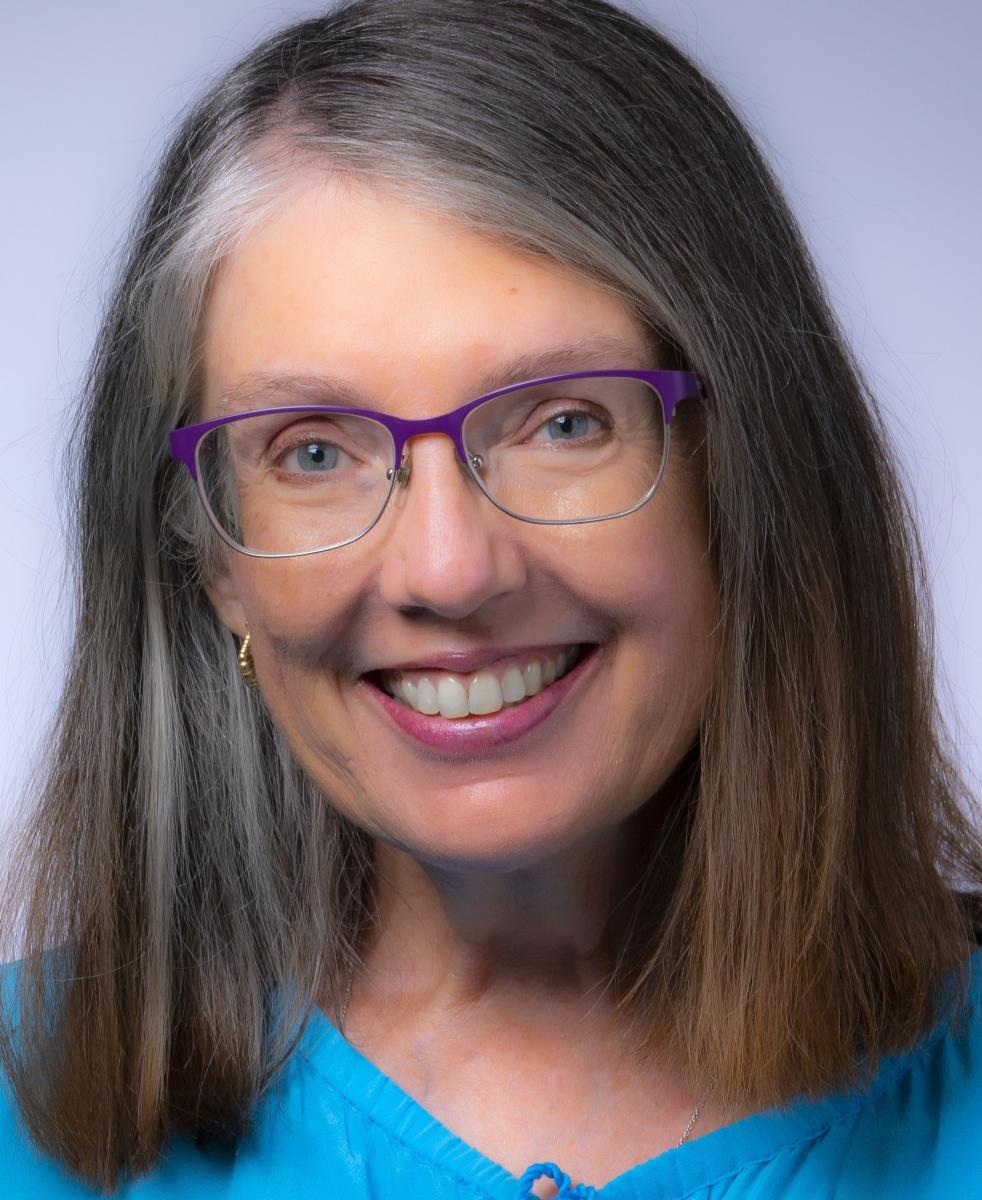 And, that is where the issue lays tangled up.
And, that is where the issue lays tangled up.
Keeping up the good fight!!
Lisa Bogart is the Director of NHC Library at Hudson County Community College. She can be reached at lbogart@hccc.edu.
Major Information Literacy Improvements With Zero Dollars
It Can Be Done!
By Lori Lenox, MLIS
 The Camden County College (CCC) Library information literacy program posted a 6.2% increase in post-assessment results over last academic year and a 9.2% increase over the 2021–2022 academic year without increasing budget or investing in new technology. How did we do it? We got creative and used free resources to enhance our programs.
The Camden County College (CCC) Library information literacy program posted a 6.2% increase in post-assessment results over last academic year and a 9.2% increase over the 2021–2022 academic year without increasing budget or investing in new technology. How did we do it? We got creative and used free resources to enhance our programs.
To set the scene, one must understand that we are small in staff as well as budget. The budget for the information literacy program is zero so all platforms and delivery methods chosen had to be free. Also, anything we created had to be easy and not time-consuming since there is only one information literacy librarian that conducts all in-person information literacy sessions as well as designs the entire online program.
Everything would also have to work with our current systems and be simple enough to utilize our current technology. As in most libraries, these are of only average quality.
With those parameters in place, we set off on our journey.
First, to enhance student success, we identified where we needed to increase student outcomes.
We determined that our areas of focus needed to be:
- increasing student understanding of the resources available through the library;
- teaching students how they can use these resources appropriately and efficiently.
Next, we realized that students needed to develop better research skills as well as learn to use citations properly, not just in their bibliographies but also for their in-text and verbal citations.
So, we set about finding ways to reach these goals.
To do this, we focused on the online aspect of information literacy since many students at CCC are now taking their one-shot information literacy sessions online. It was decided that the videos should be closed-captioned and translated into multiple languages. To determine which languages would be most appropriate, we worked with our International Student Services department. We also determined the need to create a new assessment delivery system. We felt strongly that the new system needed to include the same content questions as the previous one so we could compare results and determine if there was an overall improvement in student understanding.
Lastly, whatever technology we chose had to work with Springshare, Canvas and PowerPoint. In the end, it was decided the best tools would be EdPuzzle and YouTube.
EdPuzzle is a downloadable app in Canvas (as well as many other LMSs) and is free. Also, they have a great training program on how to use EdPuzzle, and its features work well for creating asynchronous video sessions on information literacy for students. YouTube was recommended by our Office of Information Technology and eLearning departments because of its ability to caption videos and auto-translate the captions into multiple languages. It also works seamlessly with EdPuzzle. A win/win for us.
We used EdPuzzle and YouTube with PowerPoint to create a series of short videos, rather than a single, longer version. This was done both to keep our student’s attention and because making edits or other changes was easier after the program launched.
Some PowerPoint features that streamlined the process include the ability to add screen recordings with the click of a button to mimic in-person sessions and to demonstrate how to log onto databases from off-campus or how to run a search using the library databases. You can record audio for each slide individually; this way if there is a change, you only have to change the one slide, not the whole video. After the presentation is created with the design, text, audio, and any screen recordings, all that is needed is to record the slideshow and save as a video.
The final step is downloading the video to YouTube while auto-syncing the closed-captions. After that is done, it is recommended that your edit the closed-captions for accuracy. Once that is complete then it is just a matter of selecting which languages you want the captions translated into. We also added a note for students that the translations are autogenerated so we cannot guarantee accuracy.
In summary, EdPuzzle works seamlessly with YouTube and Canvas (as well as other LMSs). You can add the YouTube video by copying/pasting the link. To ensure students watch the entire video, there is an option to disable the video skip function. Within the video, you can add extra comments or notes as well as multiple-choice and open-ended questions to create an assessment. EdPuzzle will track and analyze the results. If you download the EdPuzzle app into your college’s LMS then you can easily add these videos as an assignment and track student progress.
Springshare was used to create the pre-assessment to keep track of the answers and grades for each pre-assessment. This pre-assessment was easily uploaded into our LMS as a requirement before starting the videos.
The biggest issue was the learning curve of EdPuzzle and developing a process to work with all of the moving parts. Also, since things change often, we wanted to ensure that any changes or edits to the videos could easily be done without having to recreate the entire project.
Once the process was developed, implementation became more efficient. This included making edits and updates, creating asynchronous information literacy sessions with closed-captions and translations, and developing a logical assessment tool.
Improvement does not always need significant budget dollars. You just need to be a little creative.
Click the following link to learn more about Camden County College Library: https://libguides.camdencc.edu/CCCLibrary
Lori Lenox, MLIS, is the Information Literacy Librarian at Camden County College. She can be reached at llenox@camdencc.edu.
Contextualizing Your LIS Research Through Reflection and Dialogue
By Drew Wallace, Justin Savage, and Catherine Baird

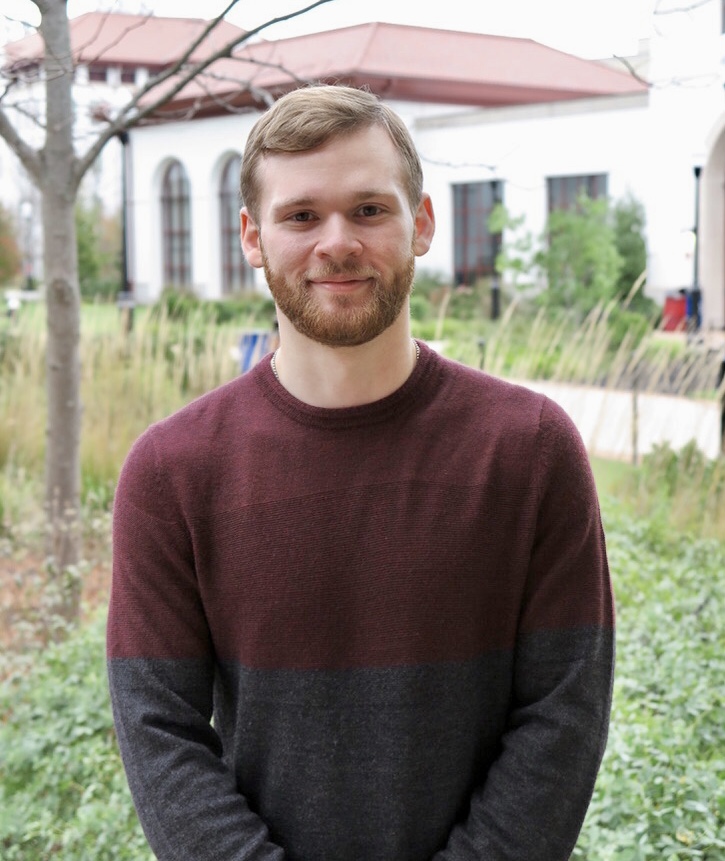
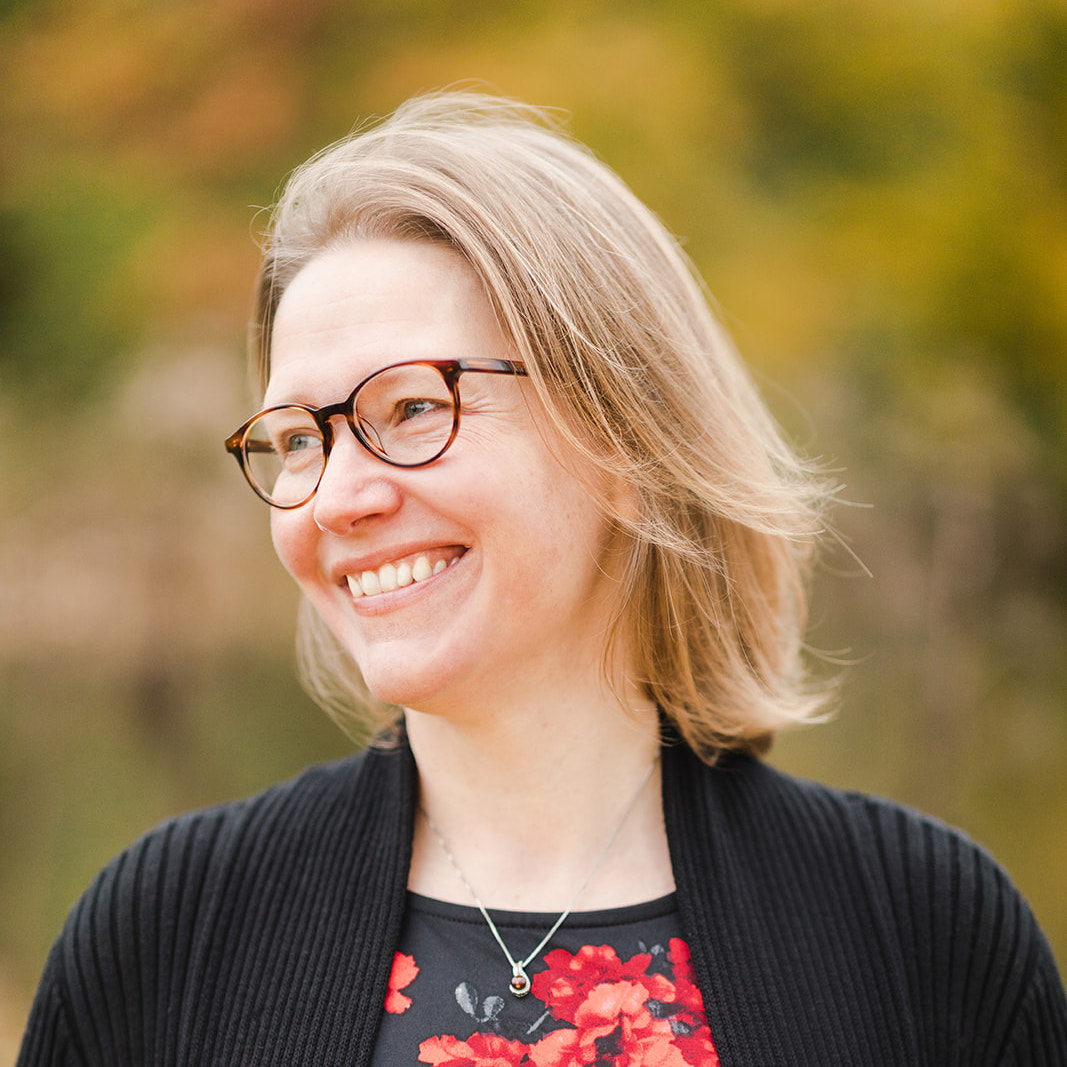
If you identify as a librarian practitioner-researcher, you may be selecting research topics based on your practice as a library professional. In order to deepen your research practice, consider incorporating elements of reflection in your work. For example, if your research is tackling a problem you are seeing in your work, such as understanding student information literacy practices, you may begin by describing the problem you see.
Tobelynn Birch recommends several reflective questions (see step one/page 17) to help with reflection during this stage of the research process:
- “How will researching this problem improve my practice? My library's practice? The profession?
- What do I feel about this problem? What are my motives for doing this study?
- Are there ethical, moral, or political issues that should be explored?”
By examining your research problem from these personal starting points, you can expand your research practice. You can continue to use reflection throughout the research process (see Tobelynn’s other slides), in particular, when selecting a research methodology. It was nearly 10 years ago that Halpern, Eaker, Jackson, and Bouqin wrote #DitchtheSurvey, Expanding Methodological Diversity in LIS Research, yet we still see many library researchers relying heavily on survey research. Part of your reflection process includes matching your research question with the best methodology. Will interviews or focus groups be a better way to help you answer your research questions? What about ethnography, a case study, or a quasi-experimental study?
Scholarship as Critical Conversation
As an LIS scholar, you may discover that the epistemic distance between yourself as practitioner-researcher and your object of inquiry is much less than in other disciplines. Library classrooms, service desks, and archives function as sites of exploration, observation, knowledge production, and application through which we closely engage with our research interests. While LIS scholars have generally adopted the social scientist’s toolkit and mode of inquiry, there are limitations to this approach that can undermine both our practical goals and the perceived legitimacy of our scholarship. For example, conceptualizing an LIS research project often involves “walking the epistemic tightrope” on which too much distance from our object of inquiry can obscure our view of it, whereas too little distance may call into question our objectivity.
What if, rather than merely imitating the social sciences (which in turn seek to imitate the natural sciences), we embraced these apparent contradictions in LIS scholarship along with our distinct positionality as practitioner-researchers? The ACRL Framework offers a compelling starting point for exploring new modes of inquiry through the concept of “Scholarship as Conversation.” Two recent articles in the Journal of Critical Library and Information Studies invert the metaphor to demonstrate, in a very literal sense, how scholarship is grounded in conversation and how conversation can become scholarship. These texts highlight the ways in which unlearning some of our deepest assumptions about what something is- LIS research as a positivist application of social science techniques- can help us discover new ways of understanding and engaging with our research interests.
In Process and Relationship, Cowan and Van Leeuwen record a telephone conversation about their research practices as they walk towards one another from opposite sides of campus. Throughout their journey, themes such as “research as collage” emerged in their conversation through the embodied experience of simply noticing the changes in scenery. In Thinking Categorically, Greenshields and Zvyagintseva invoke feminist research methods to structure their conversation about the role and status of LIS scholarship in the neoliberal academy and highlight the scholarly value of their subjective identities and experiences (i.e. gendered, racialized, etc.) in contrast to positivist notions of scholarly objectivity. Both articles employ a clever didactic approach, demonstrating the value of conversation as a scholarly practice while simultaneously using the transcript itself as a medium for communicating this value.
Critical Metascience and LIS Research
Like many others, the field of library and information science is built on a foundation of rigorous, practitioner-focused research. But what if the very tools and practices we use to evaluate this research need reevaluation themselves? This is the driving force behind the concept of critical metascience, essentially a reflection on the scholarly conversation itself.
Critical metascience takes a step back to analyze the methodologies and assumptions underlying scientific research. It explores issues like the replication crisis, a phenomenon that describes how many published findings have not been successfully reproduced by other researchers in major fields like psychology and biomedicine, for example. Critical metascience challenges the traditional notion of scientific progress and calls for a more critical approach to research evaluation.
In many ways, the critical metascience approach can inform LIS research. By understanding the limitations of research, we can better equip students to critically evaluate information. By investigating our own assumptions, LIS researchers can design studies that are more robust and replicable. As research practices continue to evolve, libraries and librarians can assume a leading role in data management and open science initiatives. Critical metascience isn't about dismantling research, but about strengthening it. By embracing this approach, LIS professionals can play a key role in ensuring the integrity and advancement of research across all disciplines.
For those interested in learning more about critical metascience, Mark Rubin's website provides a starting point with a curated list of articles exploring critical perspectives on research practices, open science, and replication.
Also, check out episode 168 of the Everything Hertz, the Retraction Watch blog, and, if you have a spare 3.5 hours, the Critical Perspectives on the Metascience Reform Movement Symposium from the Center for Open Science.
Reflection and dialogue can contribute to your identity development as a researcher and have an important impact on your work. As colleagues, we often lean on each other for these experiences and invite you to do the same. If you find yourself without such a colleague, feel free to connect with one of us!
Drew Wallace is a Research and Instruction Librarian at Montclair State University. He can be reached at wallaced@montclair.edu.
Justin Savage is the Research and Reference Librarian at Montclair State University. He can be reached at savagej@montclair.edu.
Catherine Baird is the Online and Outreach Services Librarian at Montclair State University. She can be reached at bairdc@montclair.edu.
Taking Stock of the Academic Librarian Community in New Jersey
If you read this newsletter, you are probably an academic librarian in New Jersey, but you might not be an active member of NJLA CUS/ACRL-NJ. Last year, the Executive Board (EB) of NJLA CUS/ACRL-NJ noticed a decline in committee membership and meeting attendance. While the EB had some guesses about the reasons behind the decline, we realized we needed to hear directly from you - including members, past members and non-members.
In the fall of 2023, the Membership Assessment Task Force created and disseminated a survey to New Jersey academic librarians. We tried to reach as many people as possible by tracking down emails from library websites and posting the survey on listservs and social media. 156 respondents completed the survey (view charts on right for results). We also followed up with focus groups, talking with 19 librarians--representing members and non-members--to discuss some more open-ended questions.
To all who filled out the survey or participated in a focus group: Thank you!
While we are still compiling the findings, some themes have emerged. Many respondents truly value the work of our committees and the networking and professional development opportunities that NJLA CUS/ACRL-NJ provides. We also heard from respondents who reported having less time, motivation, and funding for professional library organizations and professional development. The cost of membership and lack of time were cited as the two main barriers to joining. Some barriers were more informational and we realized that NJLA CUS/ACRL-NJ could do more to raise awareness of all that we offer and to counter confusion about the name of the group as well as the logistics of joining.
The Task Force is currently working on a report of recommendations to the EB. We hope to translate our findings into tangible changes that make the organization stronger and more accessible. More information to come - look for our poster at the NJLA conference this spring.
If you have questions or if you have feedback you’d like to offer, we are always interested to hear from you. And if you are looking to get more involved with NJLA CUS/ACRL-NJ, we’d love to have you! Email Chair Nicole Potdevin or any Task Force member; information appears below.
Membership Assessment Task Force
Chair: Nicole Potdevin potdevin@fdu.edu
Theresa Agostinelli tagostinelli@brookdalecc.edu
Maria Deptula mdeptula@libraries.rutgers.edu
Kate Hossain khossain@bergen.edu
Dan Kipnis kipnisd@rowan.edu
R. Christina Ware rware2@essex.edu
NJASL Partners With NJLA CUS / ACRL-NJ
New Jersey libraries are in a very peculiar position right now: on the K-12 level the Department of Education has been tasked with creating the Information Literacy New Jersey Student Learning Standards. The New Jersey State Library has received an IMLS grant to create a statewide Information Literacy Curriculum and the ACRL-CUS/NJLA chapter is currently reviewing the Information Literacy Progression Standards.
We have a unique opportunity to create statewide vertical and horizontal professional development opportunities that touch all of our patrons: those in school, public and academic libraries.
How can we make that work? By extending our librarianship and professionalism outside our institutions and the walls of our libraries.
Although there are significant differences between school and academic libraries, there are also many similarities: we provide access to academic materials to support faculty, staff, instructors, and students, we do not have set instruction time, we have to develop professional relationships with faculty and staff in order to be given the instruction time, we are understaffed, and face many budgetary issues.
What we can do with our limited resources is to open a line of communication and share our professional experiences to offer our expertise and support to each other.
School librarians have been advocating for a long time asking school administrators, school board members, New Jersey Department of Education and other organizations for support. Although the principle of the K-12 education is to prepare students for their next professional or academic step, how are they supposed to do it if they don’t know what they don’t know?
Ever since NJASL started to collaborate with ACRL-CUS/NJ we have realized that there is a lot we can learn from each other. We truly can close the high school to college readiness gap if we collaborate, exchange ideas, and open up to institutional collaborations.
My professional practice as a past high school librarian changed when I was able to observe my academic colleagues in action, seeing them provide research instruction and using academic level tools.
The requirement to teach information literacy in K-12, although needed and welcomed by school librarians, is also very intimidating. School librarians might not have the right tools and strategies to apply in their daily practice.
If you are an academic librarian with a set of skills or strategies that can help develop college readiness for K-12 students, consider offering professional development for school librarians and educators in your area. If that’s too big of a task, offer a presentation during one of many statewide conferences outside of academic librarianship. Participate in Teaching Thursdays, which have been very well received by K-12 library specialists. Your workshop does not have to be around education, it can be about specific skills that help students grow academically based on the desired disciplines they want to study. What should a future college student know in your respected field to be successful? In STEAM? In Computer Sciences? Engineering? Creative works and arts?
School leaders, administrators, decision makers need to hear from you as well. You need to tell them that lack of support for K-12 directly affects future college students and sets them apart from those who had high quality research skills or information literacy skills practice.
Here is a list of conferences worth attending or presenting at if you want to improve college readiness and support your K-12 colleagues:
- NJASL Spring meeting: https://njasl.org/SpringMtg
- NJLA Conference: https://njlaconference.info/
- NJPSA (Oct 16-18): https://welcome.njpsa.org/fea/s/lt-event?id=a1Y4W0000059UWsUAM
- NJSBA (Oct. 22-24): https://www.njsba.org/
Ewa Dziedzic-Elliott is the Education Librarian at The College of New Jersey. She can be reached at dziedzie@tcnj.edu.
Taking Stock of the Academic Librarian Community in New Jersey: Survey Results
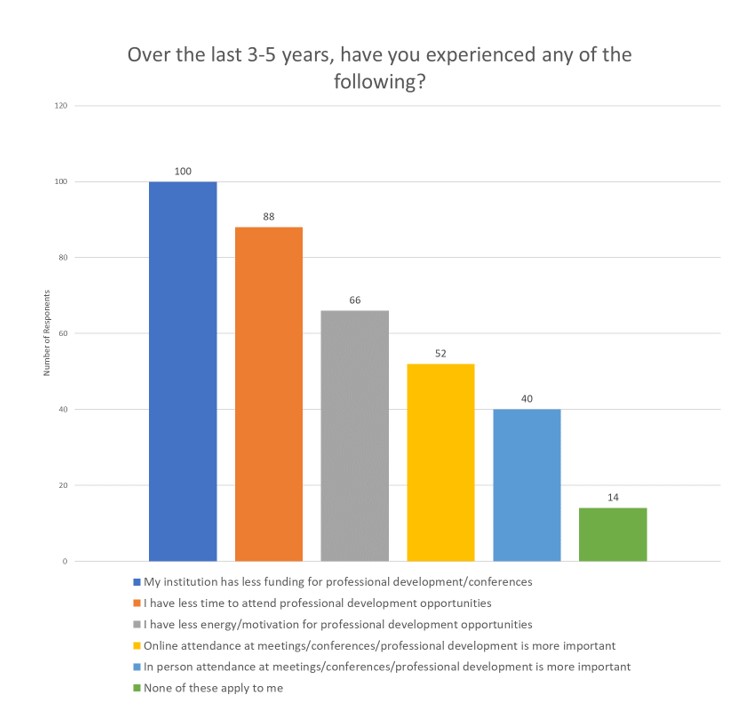
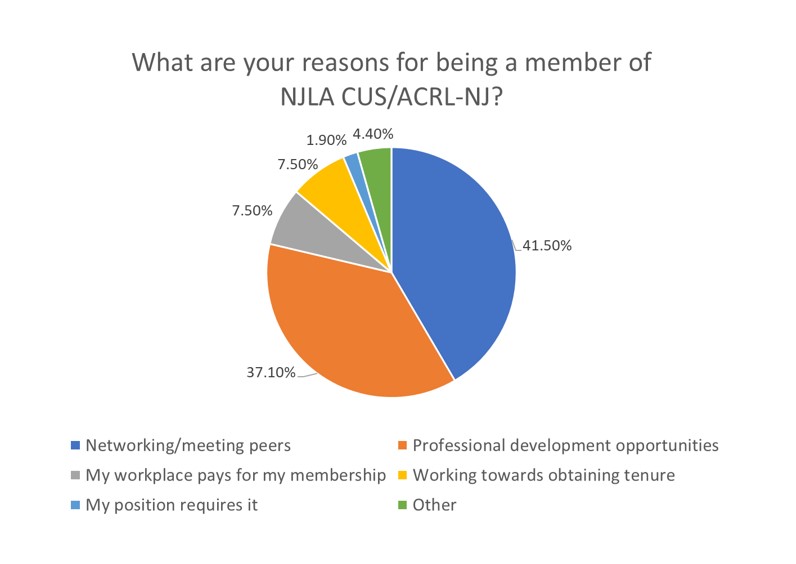
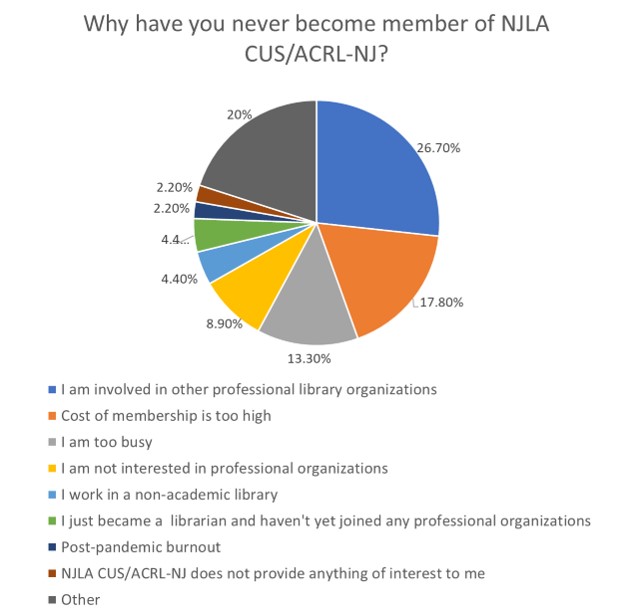
Please join the New Jersey Association of School Librarians (NJASL) and SWEEP NJ to send a message to the Assembly and Senate Leadership that New Jersey should protect the Freedom to Read.
Building a Library Culture of Belonging for the Future
Presentation at New Jersey Academic Libraries Conference on January 5, 2024
by Natalie Lau and Audrey Welber
Audrey Welber (Princeton University), Romel Espinel (Stevens Institute of Technology Library), and Natalie Lau (formerly at Princeton University Library, now at Seton Hall University Library) co-presented this talk at the VALE conference. Espinel and Welber talked about the innovative community-building programs at their institutions, and Lau shared her experiences as a support staff member in Princeton’s Personal Librarian program.
Espinel detailed his experiences forming the Stevens Summer Book Club which focuses on “creat[ing] an intentional and casual space for co-learning, critical thinking as a community, and addressing systemic racism”. This is a collaboration with the Stevens Office of Diversity, Equity, & Inclusion and aims for an audience encompassing students, faculty, and staff.
Welber discussed the creation and development of Princeton’s Personal Librarian Program, which pairs every Princeton undergraduate with a member of the Library staff and aims to provide a “safety net,” especially for first- and second-year students. (Juniors and seniors typically have a connection with their departmental subject librarian, though they are invited to maintain contact with their designated Personal Librarian.) Welber explained the program’s genesis, which was inspired by a similar program at Yale University. She focused on the recent creation of “identity cohorts” such as student-athletes and members of Princeton’s “Freshman Scholars Institute.” Welber was approached by the Dean of Student Services to form these smaller cohorts for closer, more targeted, individual support. Current sports team cohorts include football, basketball, wrestling, track, men’s and women’s cross country, and men’s and women’s hockey.
Welber invited Natalie Lau to speak about her involvement in the Personal Librarian program because of her excellent contributions as a member of Princeton’s union support staff during her time at Princeton University. Lau spoke about her experiences fielding questions and providing reference services, describing them as more akin to a traditional reference interview experience. She found it a welcome opportunity for professional development, and that the informal approach to interactions with students was a mindset shift that was fun to navigate.
Natalie Lau is the Scholarly Communications Librarian at Seton Hall University. She can be reached at natalie.lau@shu.edu
For inquiries regarding the program, please contact Audrey Welber, Coordinator for Undergraduate Research and Instruction at Princeton University. She can be reached at abw@princeton.edu.
Centenary University's Taylor Memorial Library Partners with the Black Authors Hall of Fame
By Susan Van Alstyne and Rita Keene
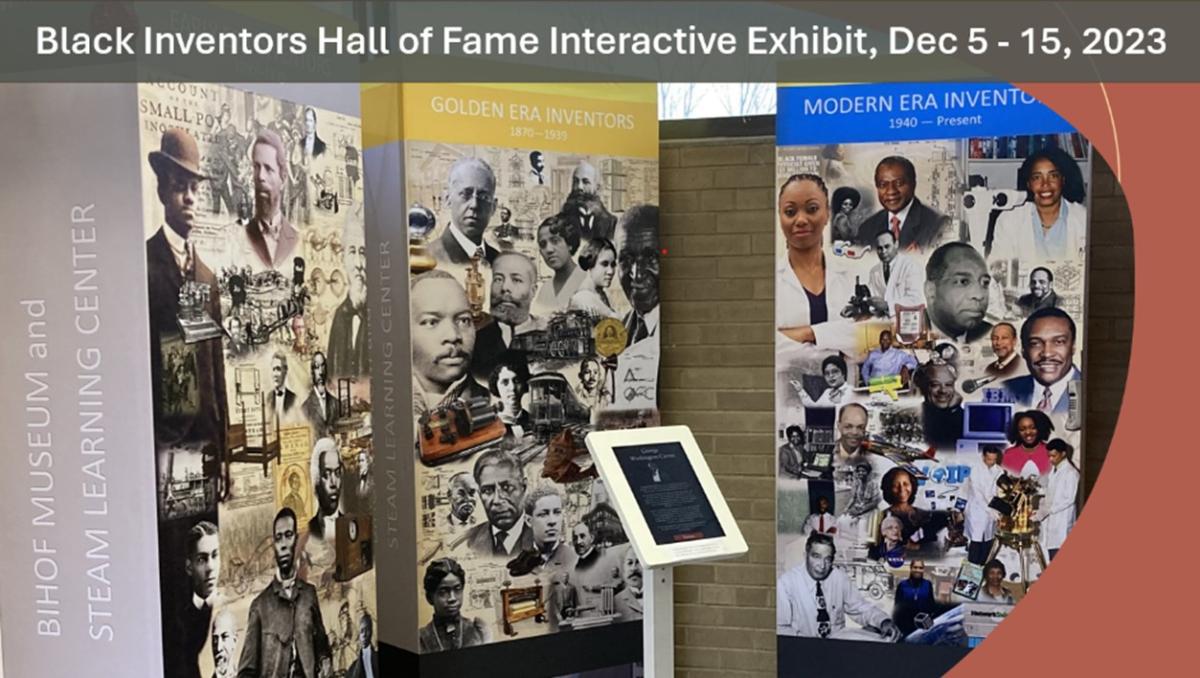 Thanks to the visionary leadership of Centenary University President, Dr. Dale Caldwell, the Taylor Memorial Library has taken on the role as the home for all the Black Halls of Fame. The Black Excellence Alliance (BEA) has founded the Black Halls of Fame to celebrate the exceptional achievements of outstanding individuals. The Black Halls of Fame include the Black Inventors Hall of Fame (BIHOF) and the Black Entrepreneurship Hall of Fame (BEHOF). These halls of fame honor past and present achievers, including individuals and organizations that have been overlooked in history books. They also serve as a source of inspiration for future generations.
Thanks to the visionary leadership of Centenary University President, Dr. Dale Caldwell, the Taylor Memorial Library has taken on the role as the home for all the Black Halls of Fame. The Black Excellence Alliance (BEA) has founded the Black Halls of Fame to celebrate the exceptional achievements of outstanding individuals. The Black Halls of Fame include the Black Inventors Hall of Fame (BIHOF) and the Black Entrepreneurship Hall of Fame (BEHOF). These halls of fame honor past and present achievers, including individuals and organizations that have been overlooked in history books. They also serve as a source of inspiration for future generations.
The Taylor Memorial Library is proud to support the Black Halls of Fame through displays and successful events. Recently, we had the privilege of hosting Professor James Howard, CEO of the Black Inventors Hall of Fame. He brought his interactive display to our library, which has previously been showcased at the Princeton Public Library and Essex County Community College. Additionally, we collaborated with the Black Entrepreneurship Hall of Fame to organize a successful panel event.
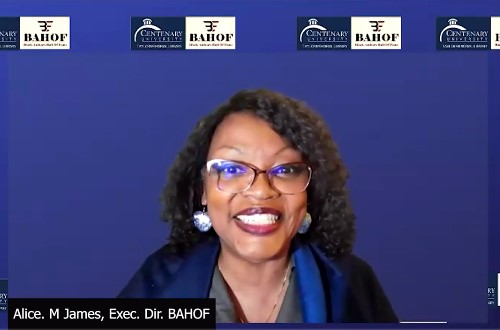 We were thrilled when Alice James, CEO of the Black Authors Hall of Fame, approached us about a Black History Author event “with a unique twist.” Alice's collaboration provided us with the opportunity to host a watch party and livestream a talk by distinguished professors and authors who discussed Miss Lou. Louise Bennett-Coverley, also known as Miss Lou, was a Jamaican poet, folklorist, writer, and cultural icon. Miss Lou made an immense contribution to Jamaican culture and literature. We organized the watch party that Alice promoted through various social media channels. The success was all attributed to Alice’s promotional materials in addition to organizing such engaging speakers. Speakers included Dr. Opal Palmer Aidsa, author, editor, and educator; author Andrene Bonner; author Dawn Forrester Price; and author Faith Nelson.
We were thrilled when Alice James, CEO of the Black Authors Hall of Fame, approached us about a Black History Author event “with a unique twist.” Alice's collaboration provided us with the opportunity to host a watch party and livestream a talk by distinguished professors and authors who discussed Miss Lou. Louise Bennett-Coverley, also known as Miss Lou, was a Jamaican poet, folklorist, writer, and cultural icon. Miss Lou made an immense contribution to Jamaican culture and literature. We organized the watch party that Alice promoted through various social media channels. The success was all attributed to Alice’s promotional materials in addition to organizing such engaging speakers. Speakers included Dr. Opal Palmer Aidsa, author, editor, and educator; author Andrene Bonner; author Dawn Forrester Price; and author Faith Nelson.
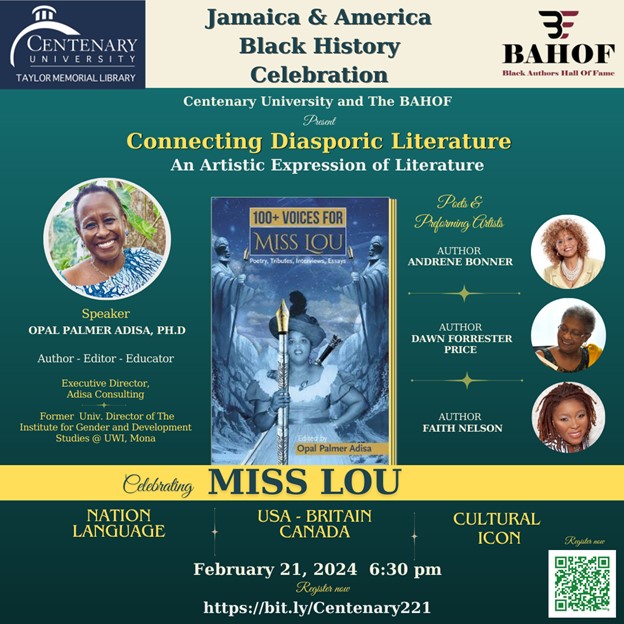
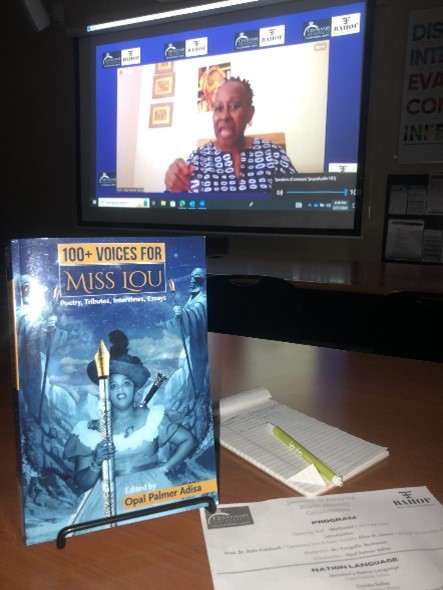
It is important to acknowledge and appreciate the contribution of Black authors to literature throughout the year. Their works should be an integral part of our collections and programs. We recently added the book 100+ Voices for Miss Lou to our collection and we are thrilled to introduce her to our campus community. As we reflect on all the Black History events in our library, we should consider how many of them highlight the diaspora or introduce new authors to our community. Faculty and students alike were captivated with the speakers and learning about Miss Lou. Following the event, I researched the speakers and plan to add more of their books to our collection. As libraries aim to diversify their collections, it is crucial to ensure that our libraries and collections are inclusive of all.
We encourage you to visit the BAHOF website and check out our LibGuide on Taylor Memorial Library's partnership with Black Halls of Fame, the author's websites (see links above), and the video of the program: Connecting Diasporic Literature - Jamaica and America's Black History
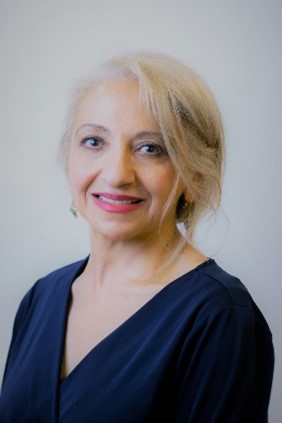
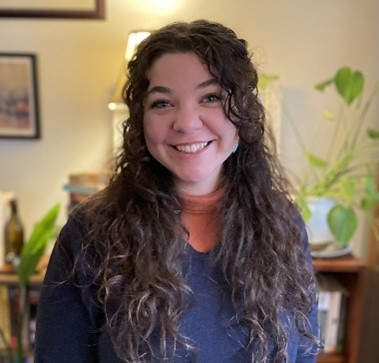
Susan Van Alstyne (left) is the Director of the Taylor Memorial Library at Centenary University, and can be reached at susan.vanalstyne@centenaryuniversity.edu.
Rita Keene (right) is the Library User Experience (UX) Manager at Centenary University, and can be reached at rita.keene@centenaryuniversity.edu.
SCARLA Offers Curated Professional Development for All
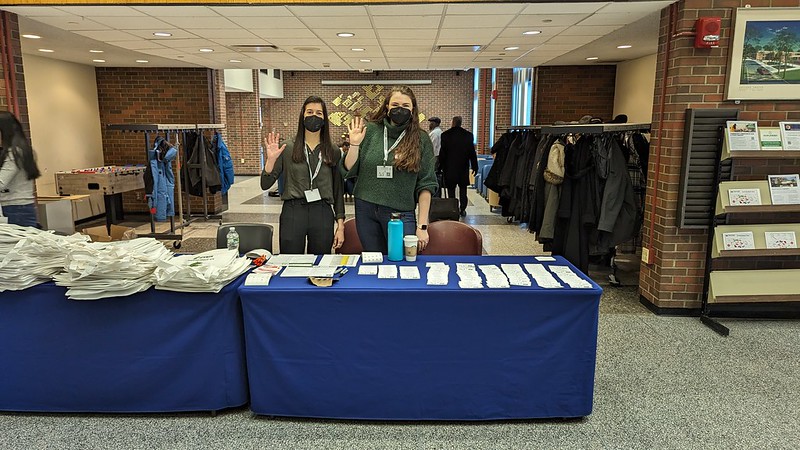 It has been a semester full of engaging opportunities for members and friends of SCARLA: the Student College, Academic and Research Libraries Association at Rutgers University. Members were excited to kick off the New Year by participating in the 2024 New Jersey Academic Libraries Conference at Middlesex College on January 5. Rutgers LIS students (Bethany Falcon and Carolyn Quimby, right) were invited to assist with event registration and rewarded with the opportunity to attend break-out sessions, network with future colleagues, and listen to the keynote address offered by ALA President Emily Drabinski.
It has been a semester full of engaging opportunities for members and friends of SCARLA: the Student College, Academic and Research Libraries Association at Rutgers University. Members were excited to kick off the New Year by participating in the 2024 New Jersey Academic Libraries Conference at Middlesex College on January 5. Rutgers LIS students (Bethany Falcon and Carolyn Quimby, right) were invited to assist with event registration and rewarded with the opportunity to attend break-out sessions, network with future colleagues, and listen to the keynote address offered by ALA President Emily Drabinski.
Following the conference, the SCARLA e-board hosted representatives from ACRL-NJ at its February 27th general interest meeting, where the librarians presented a panel for students interested in academic librarianship. Panelists discussed their roles at various New Jersey institutions, describing their professional pathways and answering questions about qualifications for employment in academic settings. Representing the ACRL-NJ Chapter were Joan Dalrymple (Bergen County Community College), Maria Deptula (Rutgers University), Joe Louderback (DeVry University), Gary Marks (William Paterson University), and Nicole Potdevin (Fairleigh Dickinson University).
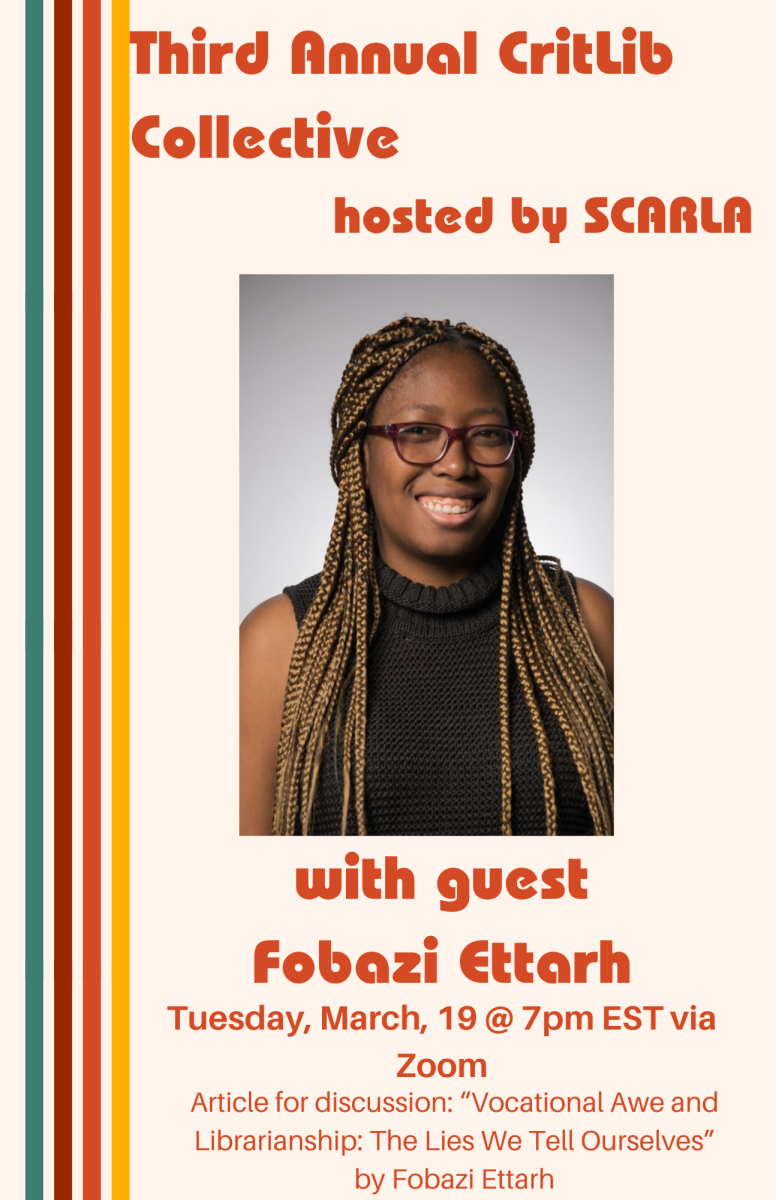 On March 19, SCARLA hosted its CritLib Collective, an annual offering in which participants read a selected scholarly article about some aspect of critical librarianship and discuss it in an open forum comprised of current Master of Information (MI) students, faculty, and practicing librarians. This spring, the group selected Fobazi Ettarh’s “Vocational Awe and Librarianship: The Lies We Tell Ourselves” for reading and discussion. In this influential 2018 paper, Ettarh coined the term “vocational awe” which describes “the set of ideas, values, and assumptions librarians have about themselves and the profession that result in beliefs that libraries as institutions are inherently good and sacred, and therefore beyond critique.” What made this meeting of the Collective particularly special was that SCARLA had the good fortune to host the author. Attendees were treated to Ettarh’s perspective and had the opportunity to ask the author questions about the article, the concept of vocational awe, and Ettarh’s path since the paper’s publication.
On March 19, SCARLA hosted its CritLib Collective, an annual offering in which participants read a selected scholarly article about some aspect of critical librarianship and discuss it in an open forum comprised of current Master of Information (MI) students, faculty, and practicing librarians. This spring, the group selected Fobazi Ettarh’s “Vocational Awe and Librarianship: The Lies We Tell Ourselves” for reading and discussion. In this influential 2018 paper, Ettarh coined the term “vocational awe” which describes “the set of ideas, values, and assumptions librarians have about themselves and the profession that result in beliefs that libraries as institutions are inherently good and sacred, and therefore beyond critique.” What made this meeting of the Collective particularly special was that SCARLA had the good fortune to host the author. Attendees were treated to Ettarh’s perspective and had the opportunity to ask the author questions about the article, the concept of vocational awe, and Ettarh’s path since the paper’s publication.
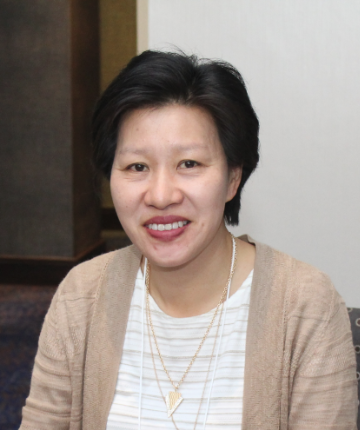 Other professional development offered by SCARLA this semester included a workshop on EndNote 21 reference management software, presented by Rutgers Science Research Librarian Mei Ling Lo (pictured right). Designed specifically for MI students, the session took place during SCARLA’s regular Tuesday evening meeting on March 27, and provided participants all the tools needed to quickly start using EndNote in their research. The session was recorded for the benefit of those who could not attend, and Lo also shared slides and supplemental materials for student use following the session.
Other professional development offered by SCARLA this semester included a workshop on EndNote 21 reference management software, presented by Rutgers Science Research Librarian Mei Ling Lo (pictured right). Designed specifically for MI students, the session took place during SCARLA’s regular Tuesday evening meeting on March 27, and provided participants all the tools needed to quickly start using EndNote in their research. The session was recorded for the benefit of those who could not attend, and Lo also shared slides and supplemental materials for student use following the session.
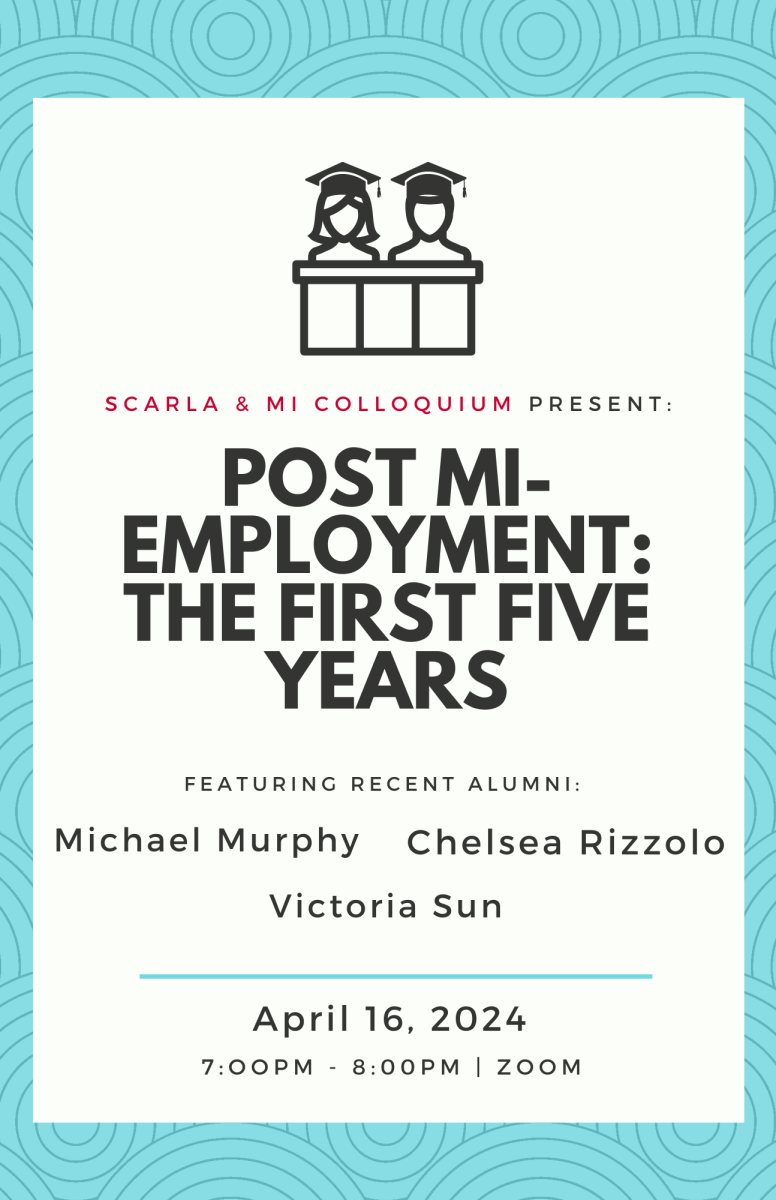 With just a few weeks left in the spring semester, SCARLA looks forward to hosting its final event of the academic year: Post MI-Employment: The First Five Years. Along with co-host, the MI Colloquium, SCARLA will welcome back three Rutgers alumni, all employed in higher education settings. Joining us on the April 16th panel are: Michael Murphy, RU MI ’22 (Politics, Policy, and Data Librarian at Seton Hall University); Chelsea Rizzolo, RU MI ’20 (Instructor/ Librarian at Brookdale Community College); and Victoria Sun, RU MI ’23 (Business & Research Support Services Librarian at Penn Libraries). Sun is also immediate past-president of SCARLA.
With just a few weeks left in the spring semester, SCARLA looks forward to hosting its final event of the academic year: Post MI-Employment: The First Five Years. Along with co-host, the MI Colloquium, SCARLA will welcome back three Rutgers alumni, all employed in higher education settings. Joining us on the April 16th panel are: Michael Murphy, RU MI ’22 (Politics, Policy, and Data Librarian at Seton Hall University); Chelsea Rizzolo, RU MI ’20 (Instructor/ Librarian at Brookdale Community College); and Victoria Sun, RU MI ’23 (Business & Research Support Services Librarian at Penn Libraries). Sun is also immediate past-president of SCARLA.
Topics to be covered include: How do I parlay my internship into a full-time gig? How do I make the leap from paraprofessional to librarian status? How do I leverage student leadership and publication experiences into marketable assets of my candidacy and CV? What is the best advice for a graduate student preparing to enter the academic library job market? All panelists will share a bit about their job search and initial months in their current positions, in addition to talking about the specific aspects highlighted above. There will also be time for Q&A from attendees.
SCARLA is the graduate student organization at Rutgers University dedicated to academic and research librarianship; it is affiliated with the NJLA College and University Section and the New Jersey Chapter of ACRL. SCARLA’s current president is Carolyn Quimby; Erin Mustard is vice president. Current executive board members include Bethany Falcon, David Moles, and M.A. Rocks. SCARLA has benefited from the guidance of Dr. Nancy Kranich this past spring, who is serving as advisor while Dr. Marie Radford is on sabbatical. For more information, including details about upcoming events, visit https://scarla.rutgers.edu.
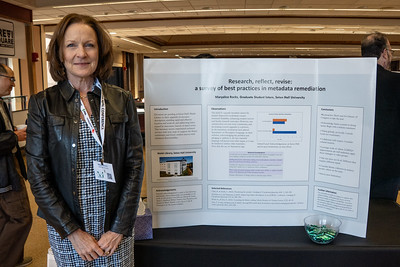 If you are interested in connecting with SCARLA, you can join the listserv by sending an email to comminfo_scarla-join@email.rutgers.edu, with the word “subscribe” as the subject line.
If you are interested in connecting with SCARLA, you can join the listserv by sending an email to comminfo_scarla-join@email.rutgers.edu, with the word “subscribe” as the subject line.
If you have an employment or internship opportunity you would like to post to the SC&I Job Board, please email details to Ildi Koczan, Assistant Director of Student Services for Careers at ildi.koczan@rutgers.edu.
Maryalice Rocks is the SCARLA Treasurer 2023–2024, Rutgers University Chapter. She can be reached at mr1673@scarletmail.rutgers.edu.
News From Jennings Library at Caldwell University
On March 1, 2024, Caldwell University hosted its third annual Social Justice Symposium, an event that brings together students, faculty, and members of the wider community to learn about and discuss issues of social justice. The theme of this year’s symposium was “Your Voice Matters,” and Christina Getaz, electronic resources librarian at Caldwell’s Jennings Library, used that idea as inspiration to discuss the role that information can play in social justice activism.
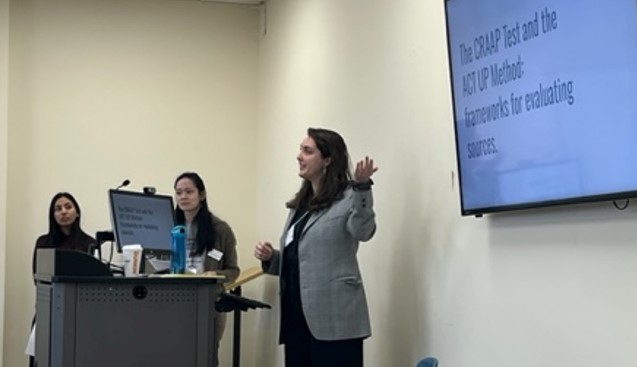 Along with Jessica Chhetri, a student library worker, and Phoebe Duke-Mosier, CUJL Instruction & Assessment Librarian, Christina presented a workshop on Dawn Stahura’s ACT UP framework for evaluating sources, which was named after and inspired by the AIDS Coalition To Unleash Power, an advocacy group that has been working to end the AIDS pandemic since the 1980s. The workshop began with a brief introduction to the ACT UP organization’s origins and its role in combating the misinformation, lack of information, and stigma that hindered early attempts to address the HIV/AIDS crisis. They then unpacked the ACT UP framework and discussed how it can be used as a tool to critically examine information, especially about contentious or developing topics.
Along with Jessica Chhetri, a student library worker, and Phoebe Duke-Mosier, CUJL Instruction & Assessment Librarian, Christina presented a workshop on Dawn Stahura’s ACT UP framework for evaluating sources, which was named after and inspired by the AIDS Coalition To Unleash Power, an advocacy group that has been working to end the AIDS pandemic since the 1980s. The workshop began with a brief introduction to the ACT UP organization’s origins and its role in combating the misinformation, lack of information, and stigma that hindered early attempts to address the HIV/AIDS crisis. They then unpacked the ACT UP framework and discussed how it can be used as a tool to critically examine information, especially about contentious or developing topics.
(Pictured from left to right): Jessica Chhetri, Phoebe Duke-Mosier and Christina Getaz
The final portion of the workshop applied the ACT UP framework to a local issue of environmental justice: the Diamond Alkali Superfund site, a miles-long stretch of the Passaic River that remains highly polluted by by-products of DDT and Agent Orange, both of which were manufactured at a factory on the site in the mid-twentieth century. Much of the Diamond Alkali site is located in the densely populated Ironbound neighborhood of Newark, a multi-ethnic community with a strong tradition of environmental justice activism. Workshop participants split into small groups, each of which read a different information source about the Diamond Alkali site and responded to question prompts that encouraged them to apply the elements of the ACT UP method to their source. (This was also an opportunity to sneak in another hot-button topic: one of the sources the groups discussed was generated by ChatGPT in response to a question about our topic!) They closed the workshop by having the groups share takeaways from their discussions.
Overall, the workshop was a success. There were more participants than expected, some of whom came with their own insight and knowledge about the topic of choice. And, there was an engaging conversation about a local issue, as well as the factors that shape discourse about and our understanding of it.
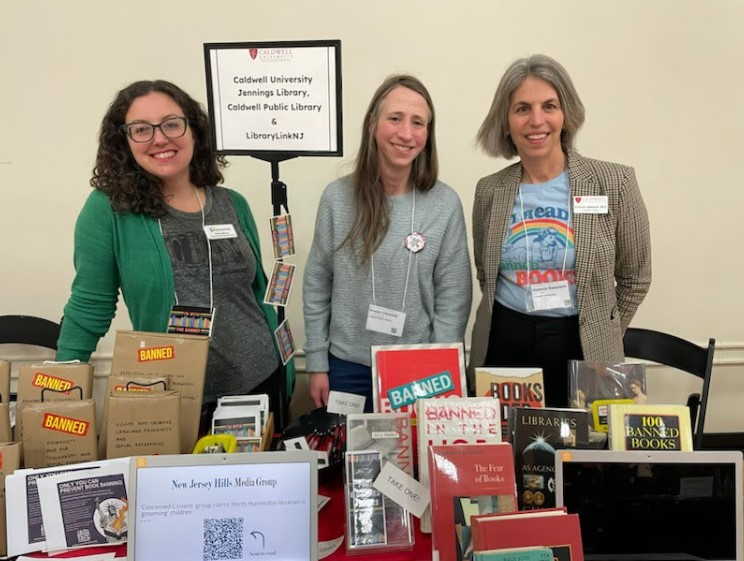
Also at the Social Justice Symposium were LibraryLinkNJ Programming and Outreach Manager Darby Malvey, Caldwell Public Library Youth Services Librarian Kristen Churchill and Victoria Swanson, Library Director at Jennings Library at Caldwell University. They collaborated to raise awareness on book banning and how that relates to social justice. Their table displayed resources to show the history of censorship and banning books, current news stories about book banning in the state of NJ and action items on how to support The Freedom to Read Act and ways to support and protect librarians fighting for the freedom to read.
(Pictured from left to right): Darby Malvey, Kristen Churchill and Victoria Swanson
Victoria Swanson is the Library Director at Jennings Library at Caldwell University. She can be reached at viswanson@caldwell.edu.
Editors
The CUS/ACRL-NJ Newsletter is edited by Joan Dalrymple, Reference and Instruction Librarian at Bergen Community College and Katie Maricic Cohen, Interlibrary Loan, Reference and Instruction Librarian at Ramapo College of New Jersey. NJLA Intern MaryAlice Rocks and Natalie Lau, Scholarly Communications Librarian at Seton Hall University, recently joined the Newsletter Committee and assisted with editing and reviewing articles for this issue.
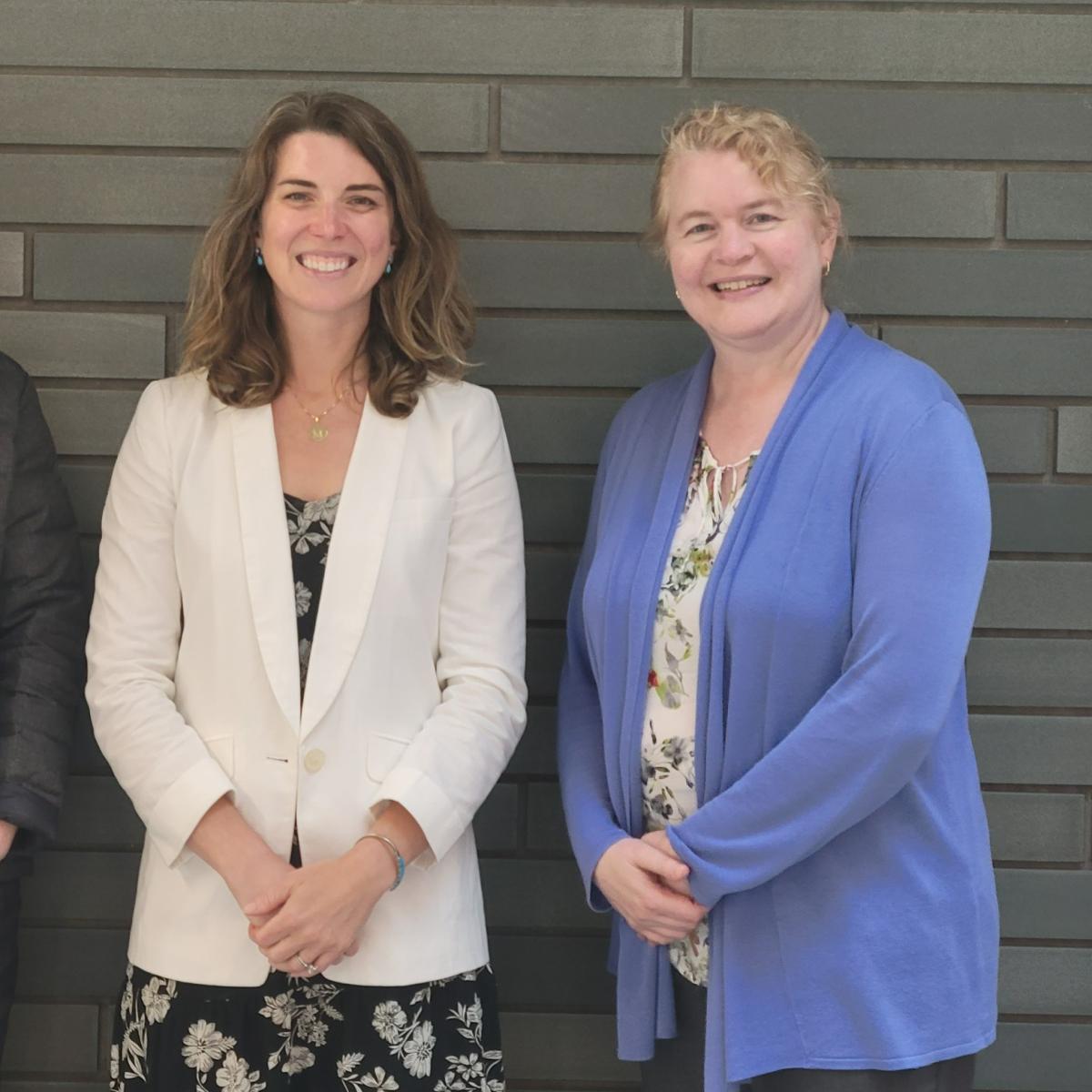
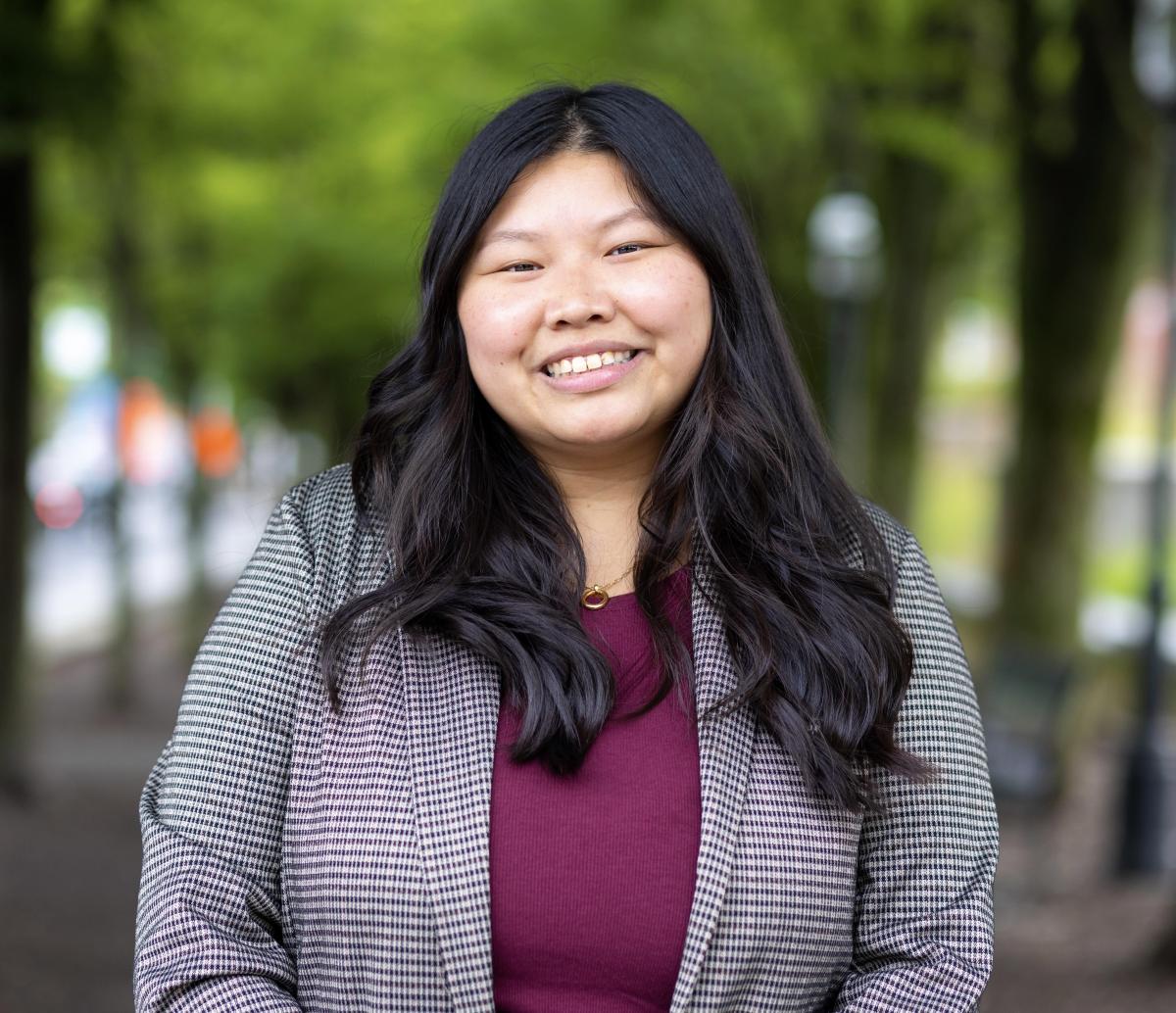
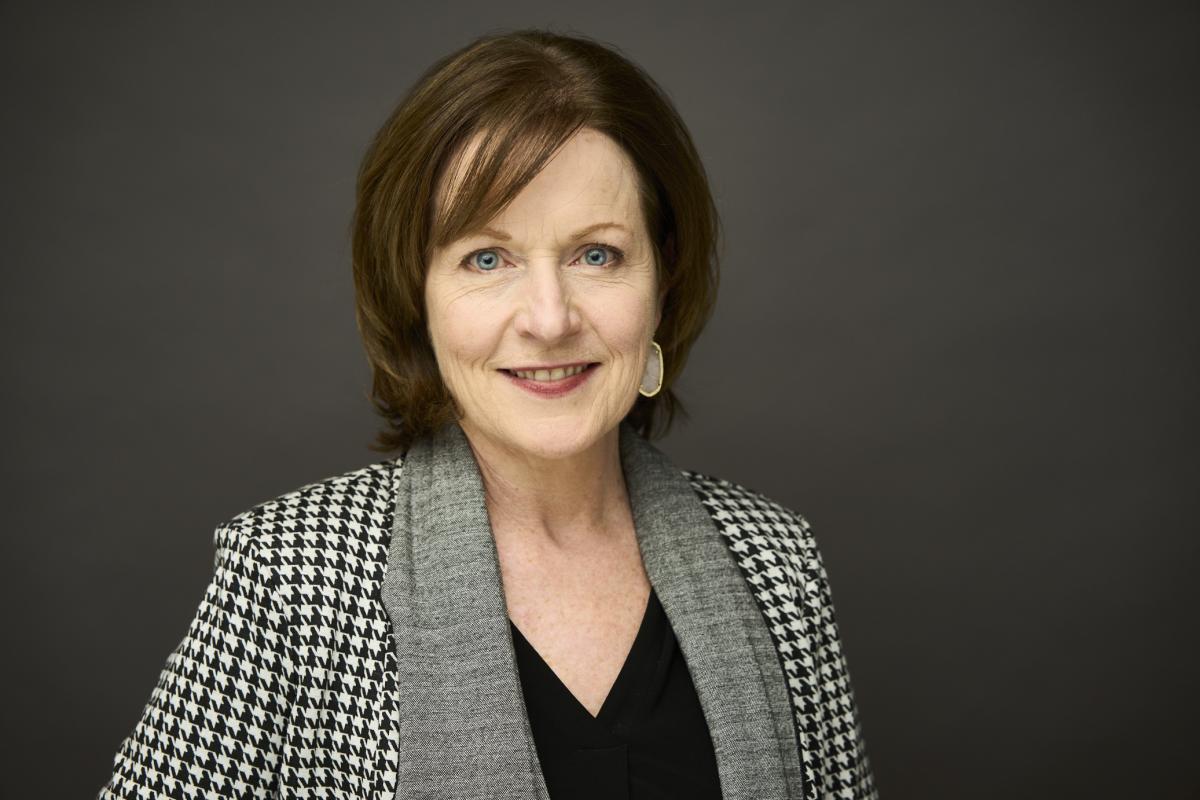
(Pictured from left to right): Editors Katie Cohen and Joan Dalrymple pose for a picture at Ramapo College's George T. Potter Library in Summer 2022; Natalie Lau; MaryAlice Rocks.

